 Special Call for Submissions November 13, 2021 - The Historical Perspectives in Art Section is open to scholars and clinicians who are interested in researching art history as it broadly relates to rehabilitation medicine. We hope that you will reflect on your experiences in the humanities of rehabilitation and consider submitting a piece to our journal.
Special Call for Submissions November 13, 2021 - The Historical Perspectives in Art Section is open to scholars and clinicians who are interested in researching art history as it broadly relates to rehabilitation medicine. We hope that you will reflect on your experiences in the humanities of rehabilitation and consider submitting a piece to our journal.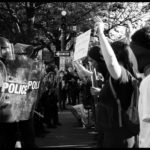 Healing Hands: A Street Medic in the Twin Cities Uprising November 17, 2020 - This unique reflective narrative presents a harrowing account of a clinician’s experience trying to heal the wounds of demonstrators during the Twin Cities uprising this past spring. Michael Rosentreter and Jáime Gonzalez vividly describe Rosentreter's time spent navigating flash grenades, tear gas, and other threats as he provides medical support to demonstrators. The experience helped him realize how valuable the role of a physical therapist in emergency settings truly is. Reflecting on the lessons learned during those nights, he realized, "However elevated the risk to me, nothing I experienced compares to the fear and danger people of color continually face." He states his commitment to the role of advocacy in physical therapy to recognize and dismantle systemic, institutional, and individual racism.
Healing Hands: A Street Medic in the Twin Cities Uprising November 17, 2020 - This unique reflective narrative presents a harrowing account of a clinician’s experience trying to heal the wounds of demonstrators during the Twin Cities uprising this past spring. Michael Rosentreter and Jáime Gonzalez vividly describe Rosentreter's time spent navigating flash grenades, tear gas, and other threats as he provides medical support to demonstrators. The experience helped him realize how valuable the role of a physical therapist in emergency settings truly is. Reflecting on the lessons learned during those nights, he realized, "However elevated the risk to me, nothing I experienced compares to the fear and danger people of color continually face." He states his commitment to the role of advocacy in physical therapy to recognize and dismantle systemic, institutional, and individual racism.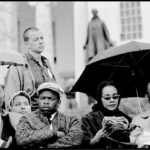 A Challenge from the ‘Otherside of America’: Perspectives from a Black Clinician November 17, 2020 - In this stirring account, Oluremi Wanjiru Onifade and Sarah Caston present an honest and compelling look at the challenges within the physical therapy educational community for Black and brown people. Onifade paints a picture of her life growing up as a Kenyan/Nigerian queer-identifying Black American, and the obstacles she overcame on the path to her DPT. Her account ends where she challenges her colleague Caston: "There is a lack of representation of Black and brown people teaching in your PT program. Are you willing to do something?"
In response, Caston describes how that direct question changes her perception as an educator. She asks, "What does it look like for me, a white, heterosexual, cis-gender woman, to stand up to racism? And again, I ask, what does it look like for the profession of physical therapy to do the same?"
A Challenge from the ‘Otherside of America’: Perspectives from a Black Clinician November 17, 2020 - In this stirring account, Oluremi Wanjiru Onifade and Sarah Caston present an honest and compelling look at the challenges within the physical therapy educational community for Black and brown people. Onifade paints a picture of her life growing up as a Kenyan/Nigerian queer-identifying Black American, and the obstacles she overcame on the path to her DPT. Her account ends where she challenges her colleague Caston: "There is a lack of representation of Black and brown people teaching in your PT program. Are you willing to do something?"
In response, Caston describes how that direct question changes her perception as an educator. She asks, "What does it look like for me, a white, heterosexual, cis-gender woman, to stand up to racism? And again, I ask, what does it look like for the profession of physical therapy to do the same?" A Letter to My Mother November 17, 2020 - An homage to a devoted Charge Nurse, "A Letter to My Mother" lovingly shows what makes a true hero in today’s healthcare system. Ezeoyibo Justin Otiwu’s mother works nights with her COVID-19 patients without complaint and returns home to serve as a caregiver. This letter is a call-to-action for a new perspective on our essential workers, and poignantly drives us to reckon with the question of “how will we advocate for much-needed change to help the system’s valiant fighters?”
A Letter to My Mother November 17, 2020 - An homage to a devoted Charge Nurse, "A Letter to My Mother" lovingly shows what makes a true hero in today’s healthcare system. Ezeoyibo Justin Otiwu’s mother works nights with her COVID-19 patients without complaint and returns home to serve as a caregiver. This letter is a call-to-action for a new perspective on our essential workers, and poignantly drives us to reckon with the question of “how will we advocate for much-needed change to help the system’s valiant fighters?”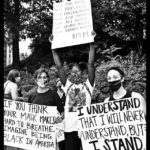 Black Lives Matter and Anti-Racism Resource Guide November 17, 2020 - In alignment with our ongoing series dedicated to addressing social change, we offer a list of humanities-based resources for the Black Lives Matter movement and social justice. The materials accessed through the links offered here address art, beauty, dance, ethics, health issues, humanities education, movies, music, writings, and the Black experience in academia and the workplace. Readers are invited to access it frequently to educate themselves, self-reflect, and either begin or add to their journey toward being consistently anti-racist.
Black Lives Matter and Anti-Racism Resource Guide November 17, 2020 - In alignment with our ongoing series dedicated to addressing social change, we offer a list of humanities-based resources for the Black Lives Matter movement and social justice. The materials accessed through the links offered here address art, beauty, dance, ethics, health issues, humanities education, movies, music, writings, and the Black experience in academia and the workplace. Readers are invited to access it frequently to educate themselves, self-reflect, and either begin or add to their journey toward being consistently anti-racist.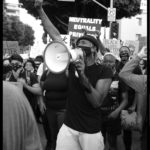 COVID-19 Resources: Health, Humanities, and Pandemic Intersections November 17, 2020 - To help JHR readers—and clinicians dealing with the pandemic—find inspiration, intellectual stimulation, and even some entertainment during these days of crisis and necessary isolation, Jamie Fleshman, SPT has compiled an extensive list of thought-provoking resources. The materials accessed through the links offered here address ethics, disability, a wide range of the arts, education, and clinical information—all collated from a humanities perspective. Readers are invited to access it frequently for inspiration during the weeks ahead.
COVID-19 Resources: Health, Humanities, and Pandemic Intersections November 17, 2020 - To help JHR readers—and clinicians dealing with the pandemic—find inspiration, intellectual stimulation, and even some entertainment during these days of crisis and necessary isolation, Jamie Fleshman, SPT has compiled an extensive list of thought-provoking resources. The materials accessed through the links offered here address ethics, disability, a wide range of the arts, education, and clinical information—all collated from a humanities perspective. Readers are invited to access it frequently for inspiration during the weeks ahead. Why Was I So Afraid? November 17, 2020 - In this thoughtful piece, Dr. Regina Kaufman tells of an encounter with a man in a checkout line who remembered that she was his physical therapist more than 30 years ago. Describing the man’s “relatively cool” demeanor, she expresses her fear that perhaps his memory of his treatment was not a completely positive one. She tries to recall the level of care she was able to provide as a novice, and notes that wisdom can only truly develop over time.
Why Was I So Afraid? November 17, 2020 - In this thoughtful piece, Dr. Regina Kaufman tells of an encounter with a man in a checkout line who remembered that she was his physical therapist more than 30 years ago. Describing the man’s “relatively cool” demeanor, she expresses her fear that perhaps his memory of his treatment was not a completely positive one. She tries to recall the level of care she was able to provide as a novice, and notes that wisdom can only truly develop over time. Vulnerability in Sports and Orthopedic Medicine November 17, 2020 - In her narrative reflection, Kate Mihevc Edwards presents her honest self-portrait as an avid runner whose life -- and very identity -- were altered by injury. But experiencing the vulnerability of losing her very sense of self proved to be a gift over time, she reports. "The work I put in to help me survive and cope made me a better clinician," she states. She shows how her loss helped her to develop a deeper understanding of the importance of empathy in healthcare.
Vulnerability in Sports and Orthopedic Medicine November 17, 2020 - In her narrative reflection, Kate Mihevc Edwards presents her honest self-portrait as an avid runner whose life -- and very identity -- were altered by injury. But experiencing the vulnerability of losing her very sense of self proved to be a gift over time, she reports. "The work I put in to help me survive and cope made me a better clinician," she states. She shows how her loss helped her to develop a deeper understanding of the importance of empathy in healthcare.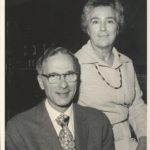 My Father’s Journey: A Reading and Interview with Susan S. Deusinger, PT, PhD, FAPTA November 17, 2020 - In a poignant personal account, Susan Deusinger details her father's final months and his ultimate decision to take charge of his own death process. Although his passing left a void in her life, she notes that he also gave her "the privilege of honoring his beliefs and supporting his choices -- something we don't always have the opportunity to do as clinicians." A video interview accompanies this piece, in Deusinger's own words.
My Father’s Journey: A Reading and Interview with Susan S. Deusinger, PT, PhD, FAPTA November 17, 2020 - In a poignant personal account, Susan Deusinger details her father's final months and his ultimate decision to take charge of his own death process. Although his passing left a void in her life, she notes that he also gave her "the privilege of honoring his beliefs and supporting his choices -- something we don't always have the opportunity to do as clinicians." A video interview accompanies this piece, in Deusinger's own words. Beyond Words November 17, 2020 - In her essay, “Beyond Words,” Amanda Kaufman, PT, DPT illustrates how providing a space for her patient to tell her full story, during one of her darkest moments, and listening carefully, established the trust that allowed their healing work together to begin.
Beyond Words November 17, 2020 - In her essay, “Beyond Words,” Amanda Kaufman, PT, DPT illustrates how providing a space for her patient to tell her full story, during one of her darkest moments, and listening carefully, established the trust that allowed their healing work together to begin. CHEP-JHR Student Essay Contest: COVID-19 and Black Lives Matter November 17, 2020 - 2020 is defined by crises and uncertainties related to the COVID-19 pandemic and racial tensions. These impact the moral, social, political and economic foundations of our world, nation, and the profession of physical therapy. Navigating one’s professional identity and formation during this time is undoubtedly challenging; you may have had unexpected, yet impactful interactions as […]
CHEP-JHR Student Essay Contest: COVID-19 and Black Lives Matter November 17, 2020 - 2020 is defined by crises and uncertainties related to the COVID-19 pandemic and racial tensions. These impact the moral, social, political and economic foundations of our world, nation, and the profession of physical therapy. Navigating one’s professional identity and formation during this time is undoubtedly challenging; you may have had unexpected, yet impactful interactions as […] Pride, Prejudice, and Professionalism November 17, 2020 - Grace White, PT, DPT, relates in her essay, "Pride, Prejudice, and Professionalism," how she used patience, insight, and a clever strategy to overcome her patient's sexist bias against her and deliver his treatment.
Pride, Prejudice, and Professionalism November 17, 2020 - Grace White, PT, DPT, relates in her essay, "Pride, Prejudice, and Professionalism," how she used patience, insight, and a clever strategy to overcome her patient's sexist bias against her and deliver his treatment. The Science of Successful Learning: Applications to Physical Therapy Education November 17, 2020 - Co-author of the book Make it Stick: The Science of Successful Learning, Mark McDaniel offers his insights into the importance of questioning the “erroneous intuitions and common practices” within contemporary education. The book highlights the faulty ways people often go about learning, and explains the research supporting how learning and memory actually work and can be optimized. In applying these concepts to physical therapy education, Leda McDaniel, Mark McDaniel’s daughter, presents three key learning techniques from Make It Stick. Having successfully employed these techniques over the years, Leda notes how they can help students “overcome challenges in acquiring the foundational knowledge and skills needed for physical therapy practice.
The Science of Successful Learning: Applications to Physical Therapy Education November 17, 2020 - Co-author of the book Make it Stick: The Science of Successful Learning, Mark McDaniel offers his insights into the importance of questioning the “erroneous intuitions and common practices” within contemporary education. The book highlights the faulty ways people often go about learning, and explains the research supporting how learning and memory actually work and can be optimized. In applying these concepts to physical therapy education, Leda McDaniel, Mark McDaniel’s daughter, presents three key learning techniques from Make It Stick. Having successfully employed these techniques over the years, Leda notes how they can help students “overcome challenges in acquiring the foundational knowledge and skills needed for physical therapy practice.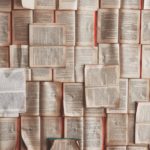 Learning Sciences in Curricula: Making Excellence in Physical Therapist Education Stick November 17, 2020 - This companion piece to the McDaniels article builds on their arguments for improved learning and applies them to physical therapy education. Steven Ambler advocates for the integration of Learning Sciences in physical therapy curricula. “Curricula that position the student, faculty, and profession as learner, and consider the plurality of learning theories, can help us all reach a deeper sense of what it means to be a physical therapist serving society,” he notes.
Learning Sciences in Curricula: Making Excellence in Physical Therapist Education Stick November 17, 2020 - This companion piece to the McDaniels article builds on their arguments for improved learning and applies them to physical therapy education. Steven Ambler advocates for the integration of Learning Sciences in physical therapy curricula. “Curricula that position the student, faculty, and profession as learner, and consider the plurality of learning theories, can help us all reach a deeper sense of what it means to be a physical therapist serving society,” he notes.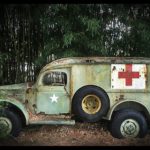 Social Context and Ambivalence in Medicine: A Book Review of “Doctors at War: Life and Death in a Field Hospital” November 17, 2020 - In their insightful review of Doctors at War, Sean Halpin and Mariano Dossou Kpanou highlight the importance of the book's account of how a medical team operated on the front lines of war in Afghanistan in 2011. "Few studies examine how teams work together in extreme and challenging environments," they note. But this short and intense book "provides a unique glimpse into how these teams function in real time." Reading it may help prepare healthcare professionals "for unprecedented situations, such as the COVID-19 health crisis of 2020," they conclude.
Social Context and Ambivalence in Medicine: A Book Review of “Doctors at War: Life and Death in a Field Hospital” November 17, 2020 - In their insightful review of Doctors at War, Sean Halpin and Mariano Dossou Kpanou highlight the importance of the book's account of how a medical team operated on the front lines of war in Afghanistan in 2011. "Few studies examine how teams work together in extreme and challenging environments," they note. But this short and intense book "provides a unique glimpse into how these teams function in real time." Reading it may help prepare healthcare professionals "for unprecedented situations, such as the COVID-19 health crisis of 2020," they conclude.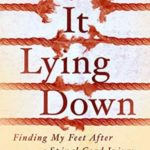 Book Review of Jim Linnell’s “Take It Lying Down: Finding My Feet After a Spinal Cord Injury” November 17, 2020 - Jamie Fleshman reviews Jim Linnell's book, "Take It Lying Down: Finding My Feet After a Spinal Cord Injury," Linnell's lively and moving account of his first two years of rehabilitation after a catastrophic accident. Fleshman also presents her interview with Linnell, including his advice for patients and clinicians during those first two critical years.
Book Review of Jim Linnell’s “Take It Lying Down: Finding My Feet After a Spinal Cord Injury” November 17, 2020 - Jamie Fleshman reviews Jim Linnell's book, "Take It Lying Down: Finding My Feet After a Spinal Cord Injury," Linnell's lively and moving account of his first two years of rehabilitation after a catastrophic accident. Fleshman also presents her interview with Linnell, including his advice for patients and clinicians during those first two critical years. Fall From November 17, 2020 - Julia Chevan leads us into her experience of a concussion through her moving and intimate poem, revealing the challenge of recognizing a new reality on the road to recovery.
Fall From November 17, 2020 - Julia Chevan leads us into her experience of a concussion through her moving and intimate poem, revealing the challenge of recognizing a new reality on the road to recovery. Constellation Syndrome November 17, 2020 - In this exquisite poem, Sophie L. Schott conveys the language that envelops a mother and her infant son, surrounded by complex medical equipment and imagining another narrative, a life not "seen through the telescope of sickness."
Constellation Syndrome November 17, 2020 - In this exquisite poem, Sophie L. Schott conveys the language that envelops a mother and her infant son, surrounded by complex medical equipment and imagining another narrative, a life not "seen through the telescope of sickness." Communicating in the Silence: Mental Health and Cultural Considerations in the Deaf and Hard of Hearing Population November 17, 2020 - "Communicating in the Silence" focuses on the challenges that deaf and hard-of-hearing (DHH) patients can face when seeking mental healthcare. Marcela Almeida and Katherine Kosman detail the barriers to care of one DHH young man, whose "medical diagnosis and treatment path were substantially changed by a more careful assessment that considered the unique aspects of the DHH population." The authors' recommendations for the future include an argument for greater use of Certified Deaf Interpreters in healthcare.
Communicating in the Silence: Mental Health and Cultural Considerations in the Deaf and Hard of Hearing Population November 17, 2020 - "Communicating in the Silence" focuses on the challenges that deaf and hard-of-hearing (DHH) patients can face when seeking mental healthcare. Marcela Almeida and Katherine Kosman detail the barriers to care of one DHH young man, whose "medical diagnosis and treatment path were substantially changed by a more careful assessment that considered the unique aspects of the DHH population." The authors' recommendations for the future include an argument for greater use of Certified Deaf Interpreters in healthcare.JHR Special Edition 2020 Summer Newsletter September 14, 2020 - “If I ever write my autobiography, I’m going to title it: ‘I was born colored and crippled but now I’m black and disabled.’” — Kate Gainer At JHR, we believe the humanities serve a fundamental role within healthcare to address uncertainties and offer opportunities to reimagine a more equitable and just future. This underlying belief […] 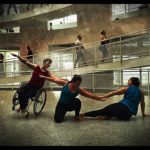 How Art Embodies Story: An Exploration of Basquiat Through a Physically Integrated Dance Performance May 18, 2020 - Melissa McCune reports on a recent dance project of Full Radius Dance—a company that integrates disabled and non-disabled dancers—which interpreted the works of artist Jean-Michel Basquiat. As a child, Basquiat experienced a debilitating injury that greatly influenced his art. Encountering groundbreaking works such as these, McCune explains, can help clinicians look beyond basic anatomy to see the “layered nature” of pain and disability.
How Art Embodies Story: An Exploration of Basquiat Through a Physically Integrated Dance Performance May 18, 2020 - Melissa McCune reports on a recent dance project of Full Radius Dance—a company that integrates disabled and non-disabled dancers—which interpreted the works of artist Jean-Michel Basquiat. As a child, Basquiat experienced a debilitating injury that greatly influenced his art. Encountering groundbreaking works such as these, McCune explains, can help clinicians look beyond basic anatomy to see the “layered nature” of pain and disability. “What is saving you now?” May 8, 2020 - None of us could ever have imagined that we would be a part of one of the generations of history. But our challenge has arrived. In an inspirational message, JHR Editor-in-Chief Dr. Sarah Blanton examines what it means to navigate these uncertain times. She demonstrates how a humanities perspective can well be what saves us and makes us stronger. “I truly believe this cohort of clinicians, experiencing this pandemic, will emerge with exceptional levels of resiliency, compassion, cognitive flexibility, and critical thinking skills…,” she concludes. “Our world will be remarkable in ways we have yet to imagine.”
“What is saving you now?” May 8, 2020 - None of us could ever have imagined that we would be a part of one of the generations of history. But our challenge has arrived. In an inspirational message, JHR Editor-in-Chief Dr. Sarah Blanton examines what it means to navigate these uncertain times. She demonstrates how a humanities perspective can well be what saves us and makes us stronger. “I truly believe this cohort of clinicians, experiencing this pandemic, will emerge with exceptional levels of resiliency, compassion, cognitive flexibility, and critical thinking skills…,” she concludes. “Our world will be remarkable in ways we have yet to imagine.” Profiles in Professionalism With Carol M. Davis May 8, 2020 - In this personal and insightful interview, Dr. Carol M. Davis relates her process of becoming a physical therapist, noting that the road to professionalism involves a willingness to “mature into oneself.” Describing her experiences working with students entering the field of physical therapy, she illustrates why studying the humanities helps students move beyond viewing their work as merely an occupation. Her reflections steer us towards a deeper understanding of what it means to be an extraordinary professional.
Profiles in Professionalism With Carol M. Davis May 8, 2020 - In this personal and insightful interview, Dr. Carol M. Davis relates her process of becoming a physical therapist, noting that the road to professionalism involves a willingness to “mature into oneself.” Describing her experiences working with students entering the field of physical therapy, she illustrates why studying the humanities helps students move beyond viewing their work as merely an occupation. Her reflections steer us towards a deeper understanding of what it means to be an extraordinary professional. My Journey Using Art as Physical Therapy May 8, 2020 - Babs McDonald describes her journey toward recovery from an ischemic stroke through painting and sketching. Through numerous examples of her artwork, she details her experiences pushing through impairment to create images chronicling her life. Based on her success, she advocates for the use of fine art techniques to foster upper limb movement in stroke survivors. Creating her art, she says, has taught her that “there are no failures in my recovery, only new challenges.”
My Journey Using Art as Physical Therapy May 8, 2020 - Babs McDonald describes her journey toward recovery from an ischemic stroke through painting and sketching. Through numerous examples of her artwork, she details her experiences pushing through impairment to create images chronicling her life. Based on her success, she advocates for the use of fine art techniques to foster upper limb movement in stroke survivors. Creating her art, she says, has taught her that “there are no failures in my recovery, only new challenges.”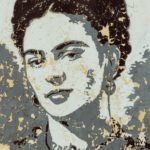 Dynamic Autonomy in Chronic Pain Management: Frida Kahlo Illustrates May 8, 2020 - As today’s healthcare professionals struggle to address the challenges of chronic-pain management, Debra Gorman-Badar argues that current multidisciplinary programs are missing a crucial component: an updated conception of patient autonomy. She details how expressive therapies help patients integrate their chronic-pain experiences into their lives and promote healing self-knowledge—as Frida Kahlo did through her remarkable paintings.
Dynamic Autonomy in Chronic Pain Management: Frida Kahlo Illustrates May 8, 2020 - As today’s healthcare professionals struggle to address the challenges of chronic-pain management, Debra Gorman-Badar argues that current multidisciplinary programs are missing a crucial component: an updated conception of patient autonomy. She details how expressive therapies help patients integrate their chronic-pain experiences into their lives and promote healing self-knowledge—as Frida Kahlo did through her remarkable paintings. What’s at Stake With Biomusic? Ethical Reflections on an Emerging Technology May 7, 2020 - Biomusic, emerging technology that translates physiological signals into sound/musical output may offer utility as an assistive technology for people with autism. The authors explore a variety of perspectives in humanities and social sciences to reflect on the ethical issues at stake with the use of biomusic in rehabilitation.
What’s at Stake With Biomusic? Ethical Reflections on an Emerging Technology May 7, 2020 - Biomusic, emerging technology that translates physiological signals into sound/musical output may offer utility as an assistive technology for people with autism. The authors explore a variety of perspectives in humanities and social sciences to reflect on the ethical issues at stake with the use of biomusic in rehabilitation.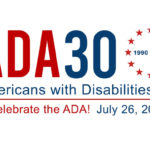 The Americans with Disabilities Act (ADA): Honoring 30 Years of Civil Rights Protections May 7, 2020 - July 26, 2020 will mark the 30th Anniversary of the Americans with Disabilities Act (ADA), which was signed into law by President George H.W. Bush in 1990. The ADA National Network, which provides information, guidance, and training on the Americans with Disabilities Act (ADA), is celebrating the act’s 30th anniversary with programs and events throughout the year and on its actual anniversary in July. Read this article to learn more about the ADA 2020 anniversary event and other resources.
The Americans with Disabilities Act (ADA): Honoring 30 Years of Civil Rights Protections May 7, 2020 - July 26, 2020 will mark the 30th Anniversary of the Americans with Disabilities Act (ADA), which was signed into law by President George H.W. Bush in 1990. The ADA National Network, which provides information, guidance, and training on the Americans with Disabilities Act (ADA), is celebrating the act’s 30th anniversary with programs and events throughout the year and on its actual anniversary in July. Read this article to learn more about the ADA 2020 anniversary event and other resources. Toward True Equity: A Call for Further Revisions to the ADA May 7, 2020 - In a timely and important editorial, Jamie Fleshman, SPT calls for new amendments to the Americans with Disabilities Act. She identifies a critical contributor to American disability: the continued inaccessibility of public spaces. Attention must be drawn, she argues, to an American infrastructure that has been constructed for “a certain set of abilities,” and is profoundly outdated.
Toward True Equity: A Call for Further Revisions to the ADA May 7, 2020 - In a timely and important editorial, Jamie Fleshman, SPT calls for new amendments to the Americans with Disabilities Act. She identifies a critical contributor to American disability: the continued inaccessibility of public spaces. Attention must be drawn, she argues, to an American infrastructure that has been constructed for “a certain set of abilities,” and is profoundly outdated. Searching Behind “No!” May 7, 2020 - Congratulations to Northwestern University Doctor of Physical Therapy Program graduate student Bethany Shieh, SPT, the winner of the annual physical therapy student essay contest co-sponsored by the ACAPT Consortium for the Humanities, Ethics, and Professionalism (CHEP) and JHR. In her essay, “Searching Behind 'No!'", Ms. Shieh illustrates how we can create space to understand the pain, suffering and frustration that accompany and influence patient care, if we are willing to enter and dwell in our patient’s life experience.
Searching Behind “No!” May 7, 2020 - Congratulations to Northwestern University Doctor of Physical Therapy Program graduate student Bethany Shieh, SPT, the winner of the annual physical therapy student essay contest co-sponsored by the ACAPT Consortium for the Humanities, Ethics, and Professionalism (CHEP) and JHR. In her essay, “Searching Behind 'No!'", Ms. Shieh illustrates how we can create space to understand the pain, suffering and frustration that accompany and influence patient care, if we are willing to enter and dwell in our patient’s life experience.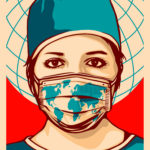 COVID-19 Resources: Health, Humanities, and Pandemic Intersections May 7, 2020 - To help JHR readers—and clinicians dealing with the pandemic—find inspiration, intellectual stimulation, and even some entertainment during these days of crisis and necessary isolation, Jamie Fleshman, SPT has compiled an extensive list of thought-provoking resources. The materials accessed through the links offered here address ethics, disability, a wide range of the arts, education, and clinical information—all collated from a humanities perspective. Readers are invited to access it frequently for inspiration during the weeks ahead.
COVID-19 Resources: Health, Humanities, and Pandemic Intersections May 7, 2020 - To help JHR readers—and clinicians dealing with the pandemic—find inspiration, intellectual stimulation, and even some entertainment during these days of crisis and necessary isolation, Jamie Fleshman, SPT has compiled an extensive list of thought-provoking resources. The materials accessed through the links offered here address ethics, disability, a wide range of the arts, education, and clinical information—all collated from a humanities perspective. Readers are invited to access it frequently for inspiration during the weeks ahead. Call for Papers May 7, 2020 - If you are interested in submitting your work to JHR, please review our Submission Guidelines. If you are considering being a reviewer, please contact Dr. Sarah Blanton: follow the Contact link, indicate the content area you are interested in reviewing, and attach your CV.
Call for Papers May 7, 2020 - If you are interested in submitting your work to JHR, please review our Submission Guidelines. If you are considering being a reviewer, please contact Dr. Sarah Blanton: follow the Contact link, indicate the content area you are interested in reviewing, and attach your CV.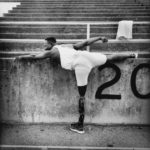 Reviving and Reflecting on “Portrait of Spirit: One Story at a Time” November 14, 2019 - Both a book and an exhibit, Portrait of Spirit: One Story at a Time by Billy Howard and Maggie Holtzberg offers new perspectives while challenging the way we view the lived disability experience. Using stunning photographs and beautifully written narratives from Portrait of Spirit, this piece serves as an ode to the groundbreaking stories that started it all while advocating for continued societal change for people living with disabilities.
Reviving and Reflecting on “Portrait of Spirit: One Story at a Time” November 14, 2019 - Both a book and an exhibit, Portrait of Spirit: One Story at a Time by Billy Howard and Maggie Holtzberg offers new perspectives while challenging the way we view the lived disability experience. Using stunning photographs and beautifully written narratives from Portrait of Spirit, this piece serves as an ode to the groundbreaking stories that started it all while advocating for continued societal change for people living with disabilities.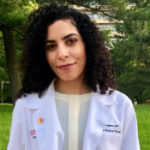 Out of Oxygen November 14, 2019 - In this sensitive reflection, DPT student Mercedes Aguirre describes an incident during her first clinical experience that taught her the importance of taking a deep breath—and speaking up on behalf of one’s patient.
Out of Oxygen November 14, 2019 - In this sensitive reflection, DPT student Mercedes Aguirre describes an incident during her first clinical experience that taught her the importance of taking a deep breath—and speaking up on behalf of one’s patient.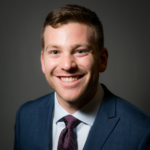 Beyond First Impressions November 14, 2019 - Jake Raecker, DPT student, recalls a patient he encountered during his first clinical rotation who gave him quite a shock—but, with care and attention, taught him a valuable lesson about looking beyond first impressions.
Beyond First Impressions November 14, 2019 - Jake Raecker, DPT student, recalls a patient he encountered during his first clinical rotation who gave him quite a shock—but, with care and attention, taught him a valuable lesson about looking beyond first impressions. “The Best is the Enemy of the Good” November 14, 2019 - The healthcare professions often attract talented, committed perfectionists. But what can practitioners do when that perfectionism negatively affects rehabilitation? In “The Best is the Enemy of the Good,” David Gillette describes how his PT residency experience, and the thoughtful guidance of his mentors, helped him confront the negative aspects of his perfectionism and turn his thoughts toward the good.
“The Best is the Enemy of the Good” November 14, 2019 - The healthcare professions often attract talented, committed perfectionists. But what can practitioners do when that perfectionism negatively affects rehabilitation? In “The Best is the Enemy of the Good,” David Gillette describes how his PT residency experience, and the thoughtful guidance of his mentors, helped him confront the negative aspects of his perfectionism and turn his thoughts toward the good.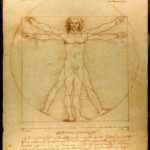 Human Anatomical Gifts and Informed Consent: Three Perspectives November 14, 2019 - The United States abides by the Revised Uniform Anatomical Gift Act to regulate bodies donated to science; prior consent must be given. When DPT students at Georgia State University had the opportunity to attend an anatomic exhibition displaying preserved human specimens from another country, many ethical questions arose. In "Human Anatomical Gifts," three writers offer their perspectives, developed during the discussions that ensued, on the ethics of anatomic study—and exhibition.
Human Anatomical Gifts and Informed Consent: Three Perspectives November 14, 2019 - The United States abides by the Revised Uniform Anatomical Gift Act to regulate bodies donated to science; prior consent must be given. When DPT students at Georgia State University had the opportunity to attend an anatomic exhibition displaying preserved human specimens from another country, many ethical questions arose. In "Human Anatomical Gifts," three writers offer their perspectives, developed during the discussions that ensued, on the ethics of anatomic study—and exhibition. Resources November 14, 2019 - Keenan Whitesides and Dorottya B. Kacsoh will compile the Resources section for the Fall 2019 Issue.
Resources November 14, 2019 - Keenan Whitesides and Dorottya B. Kacsoh will compile the Resources section for the Fall 2019 Issue. Special Call for Submissions November 14, 2019 - The Historical Perspectives in Art Section is open to scholars and clinicians who are interested in researching art history as it broadly relates to rehabilitation medicine. We hope that you will reflect on your experiences in the humanities of rehabilitation and consider submitting a piece to our journal.
Special Call for Submissions November 14, 2019 - The Historical Perspectives in Art Section is open to scholars and clinicians who are interested in researching art history as it broadly relates to rehabilitation medicine. We hope that you will reflect on your experiences in the humanities of rehabilitation and consider submitting a piece to our journal.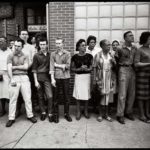 Exploring How Racism Structures Canadian Physical Therapy Programs: Counter-Stories From Racialized Students November 14, 2019 - The authors of this study conducted in-depth interviews with racialized students or recent graduates of Master’s-level physical therapy programs in Canada. The students described their experiences of white culture, and how well-meaning fellow students simply weren’t aware of the institutionalized racism around them. In compelling quotes, the students detail their feelings of frustration and resignation based on repeated exposure to race-related stereotypes.
Exploring How Racism Structures Canadian Physical Therapy Programs: Counter-Stories From Racialized Students November 14, 2019 - The authors of this study conducted in-depth interviews with racialized students or recent graduates of Master’s-level physical therapy programs in Canada. The students described their experiences of white culture, and how well-meaning fellow students simply weren’t aware of the institutionalized racism around them. In compelling quotes, the students detail their feelings of frustration and resignation based on repeated exposure to race-related stereotypes.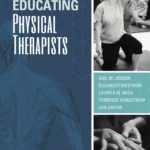 Exploring Excellence: Author Reflections on Educating Physical Therapists November 14, 2019 - In this issue’s Book Review, the authors of Educating Physical Therapists describe their “10-year journey” of discovery that produced the first definitive report on the state of American PT education in a half-century. They highlight aspects of their findings of particular interest to readers of JHR—for example, their recommendations for “integration of the humanities across the curriculum.”
Exploring Excellence: Author Reflections on Educating Physical Therapists November 14, 2019 - In this issue’s Book Review, the authors of Educating Physical Therapists describe their “10-year journey” of discovery that produced the first definitive report on the state of American PT education in a half-century. They highlight aspects of their findings of particular interest to readers of JHR—for example, their recommendations for “integration of the humanities across the curriculum.” Profiles in Professionalism with Nancy Kirsch November 14, 2019 - In our Fall 2019 installment of JHR’s “Profiles in Professionalism” series, we sit down with Dr. Nancy R. Kirsch—a thinker whose compassionate, prolific scholarship is recognized throughout the field of rehabilitation. In this interview, Dr. Kirsch explores how physical therapy has evolved, and the critical role the humanities play in developing caring and compassionate professionals.
Profiles in Professionalism with Nancy Kirsch November 14, 2019 - In our Fall 2019 installment of JHR’s “Profiles in Professionalism” series, we sit down with Dr. Nancy R. Kirsch—a thinker whose compassionate, prolific scholarship is recognized throughout the field of rehabilitation. In this interview, Dr. Kirsch explores how physical therapy has evolved, and the critical role the humanities play in developing caring and compassionate professionals. Profiles in Professionalism With Beth Skidmore November 14, 2019 - This installment of JHR’s interviews with industry innovators focuses on clinician, researcher, and educator Beth Skidmore, an award-winning Occupational Therapist whose gifts inspire a wide range of students. Beginning with her early days, detailing why she chose her field, to describing her current leadership roles, Dr. Skidmore offers a compelling picture of how professionalism develops and professionals reach enlightenment. “I think now professionalism means to me…grace and humility,” she notes.
Profiles in Professionalism With Beth Skidmore November 14, 2019 - This installment of JHR’s interviews with industry innovators focuses on clinician, researcher, and educator Beth Skidmore, an award-winning Occupational Therapist whose gifts inspire a wide range of students. Beginning with her early days, detailing why she chose her field, to describing her current leadership roles, Dr. Skidmore offers a compelling picture of how professionalism develops and professionals reach enlightenment. “I think now professionalism means to me…grace and humility,” she notes.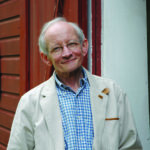 Poet in Profile – Ted Kooser November 14, 2019 - Interpreting poems written by renowned poet Ted Kooser in a Nebraskan winter in 1998, his friend Amy Haddad highlights the beauty of the human spirit when faced with life-threatening challenges. Kooser wrote the poems on his two-mile walks before dawn as he recovered from surgery, chemotherapy, and radiation for tongue and neck cancer in 1998. Compact and powerful, they show how one creative mind forged a bit of order in the “chaos” of recovery.
Poet in Profile – Ted Kooser November 14, 2019 - Interpreting poems written by renowned poet Ted Kooser in a Nebraskan winter in 1998, his friend Amy Haddad highlights the beauty of the human spirit when faced with life-threatening challenges. Kooser wrote the poems on his two-mile walks before dawn as he recovered from surgery, chemotherapy, and radiation for tongue and neck cancer in 1998. Compact and powerful, they show how one creative mind forged a bit of order in the “chaos” of recovery. Editorial: The Healing Power of Seeing—and Being Seen November 14, 2019 - Part of our job as clinicians is to recognize that while our knowledge and skills are the tools to facilitate the body’s recovery from illness, it is our shared humanness, our presence, that supports the healing power of the soul. How we dance along those lines—recognizing where our role is to fix or simply be present—is the beautiful, sometimes haunting part of the rehabilitation landscape that the humanities can help us navigate.
Editorial: The Healing Power of Seeing—and Being Seen November 14, 2019 - Part of our job as clinicians is to recognize that while our knowledge and skills are the tools to facilitate the body’s recovery from illness, it is our shared humanness, our presence, that supports the healing power of the soul. How we dance along those lines—recognizing where our role is to fix or simply be present—is the beautiful, sometimes haunting part of the rehabilitation landscape that the humanities can help us navigate. ‘Making Strange’: Exploring the Development of Students’ Capacity in Epistemic Reflexivity November 14, 2019 - Engaging in epistemic reflexivity, or the ability to question the ways in which we practice, and their association with organizational and social structures, is the key to gaining a clear perspective on the profession, according to these authors. How can students take a step back, and gain true insight into their professional world? This study employed a 7-step framework to introduce learners to the process of “making strange.”
‘Making Strange’: Exploring the Development of Students’ Capacity in Epistemic Reflexivity November 14, 2019 - Engaging in epistemic reflexivity, or the ability to question the ways in which we practice, and their association with organizational and social structures, is the key to gaining a clear perspective on the profession, according to these authors. How can students take a step back, and gain true insight into their professional world? This study employed a 7-step framework to introduce learners to the process of “making strange.”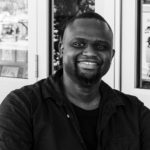 Gathering on the Wrong Side of the Road: Critical Race Scholarship Across the Health Humanities November 14, 2019 - In a compelling response to our article, "Exploring How Racism Structures Canadian Physical Therapy Programs," Dr. Bryan Mukandi offers an account of his critique of early drafts of the article, requested by the authors. He notes that his fear at the time was that the article “was an inadvertent reiteration of the idea that the inclusion of people of color in health disciplines is a matter of charity rather than justice.” Dr. Mukandi expresses the hope that more colleagues like these can gather with those “on the wrong side of the road” to foster dialogue and spur change.
Gathering on the Wrong Side of the Road: Critical Race Scholarship Across the Health Humanities November 14, 2019 - In a compelling response to our article, "Exploring How Racism Structures Canadian Physical Therapy Programs," Dr. Bryan Mukandi offers an account of his critique of early drafts of the article, requested by the authors. He notes that his fear at the time was that the article “was an inadvertent reiteration of the idea that the inclusion of people of color in health disciplines is a matter of charity rather than justice.” Dr. Mukandi expresses the hope that more colleagues like these can gather with those “on the wrong side of the road” to foster dialogue and spur change. Harnessing the Power of Language for Healing November 14, 2019 - Spurred by her recollection of Amanda Gorman’s beautiful poem spoken on the steps of the Capitol building just days after a violent attack, Sarah Blanton, in her Spring 2021 Editorial, reflects on the power of words to harm or to heal. She encourages readers to consider the daily impact of their own words on those around them. She details how researchers, educators, and clinicians can more deeply engage with the humanities in order to better hear their own stories—thereby strengthening their individual power for healing with the spoken word.
Harnessing the Power of Language for Healing November 14, 2019 - Spurred by her recollection of Amanda Gorman’s beautiful poem spoken on the steps of the Capitol building just days after a violent attack, Sarah Blanton, in her Spring 2021 Editorial, reflects on the power of words to harm or to heal. She encourages readers to consider the daily impact of their own words on those around them. She details how researchers, educators, and clinicians can more deeply engage with the humanities in order to better hear their own stories—thereby strengthening their individual power for healing with the spoken word. Reading Eucalyptus: Reflections on Narrative Education in Medicine and Health Sciences November 14, 2019 - Healthcare educators may find inspiration from a seemingly infinite number of resources. In “Reading Eucalyptus,” Christy D. DiFrances describes how an encounter with a work of magical fiction years ago still provides her with “keen observations that are surprisingly relevant to education in academic medicine and health sciences.”
Reading Eucalyptus: Reflections on Narrative Education in Medicine and Health Sciences November 14, 2019 - Healthcare educators may find inspiration from a seemingly infinite number of resources. In “Reading Eucalyptus,” Christy D. DiFrances describes how an encounter with a work of magical fiction years ago still provides her with “keen observations that are surprisingly relevant to education in academic medicine and health sciences.”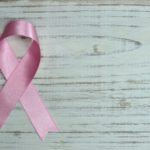 The Fragility of Life: Through Service I Live November 13, 2019 - In an honest case study from his residency year, Corey Nolte shows how “my narrow-minded understanding of the resiliency of the will to live was expanded.” As his terminally-ill cancer patient became more frail and less willing to accept treatment, they shared a tender, intimate moment of prayer. Nolte offered comfort through his patient’s final days. By carefully supporting end-of-life wishes, he notes, “we can help to unburden patient angst and give direction to our own moral compass.”
The Fragility of Life: Through Service I Live November 13, 2019 - In an honest case study from his residency year, Corey Nolte shows how “my narrow-minded understanding of the resiliency of the will to live was expanded.” As his terminally-ill cancer patient became more frail and less willing to accept treatment, they shared a tender, intimate moment of prayer. Nolte offered comfort through his patient’s final days. By carefully supporting end-of-life wishes, he notes, “we can help to unburden patient angst and give direction to our own moral compass.” Climbing Back into the World November 13, 2019 - In her stark and direct poem, Kirsten Woodend details the “multitude of indignities” that someone “in the process of body repair” can suffer. She notes how a person in recovery becomes a child in others’ eyes, “incapable of coping mentally or physically.” The poem asks why these extra psychological burdens must be added to the healing process.
Climbing Back into the World November 13, 2019 - In her stark and direct poem, Kirsten Woodend details the “multitude of indignities” that someone “in the process of body repair” can suffer. She notes how a person in recovery becomes a child in others’ eyes, “incapable of coping mentally or physically.” The poem asks why these extra psychological burdens must be added to the healing process.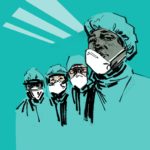 Patient Care During a Pandemic: The Significance of Humanism in Healthcare November 13, 2019 - How does a student cope with isolation during a forced four-month break from clinical rotations? Olivia Wolfe enrolled in an online course, Humanism in Health and Healthcare. Its impact inspired her to use her “voice and privilege to uplift and support essential causes fighting the twin pandemics of COVID-19 and racism.” She details her journey to a new commitment to humanism at home and in the clinic.
Patient Care During a Pandemic: The Significance of Humanism in Healthcare November 13, 2019 - How does a student cope with isolation during a forced four-month break from clinical rotations? Olivia Wolfe enrolled in an online course, Humanism in Health and Healthcare. Its impact inspired her to use her “voice and privilege to uplift and support essential causes fighting the twin pandemics of COVID-19 and racism.” She details her journey to a new commitment to humanism at home and in the clinic.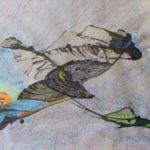 Art Informing Interdisciplinary Care for a Veteran Recovering from Traumatic Brain Injury: A Case Study November 13, 2019 - This poignant case study, featuring impressive art created by a military veteran with traumatic brain injury and comorbidities, expresses the power of Art Therapy to heal profound physical and psychological wounds. “The veteran’s art increased his self-awareness while informing the clinical team of his ongoing experience,” Gayla Elliott notes. His art and his words make a compelling case for adding art to the rehabilitation process.
Art Informing Interdisciplinary Care for a Veteran Recovering from Traumatic Brain Injury: A Case Study November 13, 2019 - This poignant case study, featuring impressive art created by a military veteran with traumatic brain injury and comorbidities, expresses the power of Art Therapy to heal profound physical and psychological wounds. “The veteran’s art increased his self-awareness while informing the clinical team of his ongoing experience,” Gayla Elliott notes. His art and his words make a compelling case for adding art to the rehabilitation process.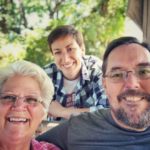 Empathy November 13, 2019 - In this artfully crafted poem, Jamie Fleshman makes a strong distinction between the shallow demands of sympathy and the far deeper mutual understanding that evolves from genuine empathy. She speaks authentically from her own experience, giving moving, useful instruction to those who want to come alongside.
Empathy November 13, 2019 - In this artfully crafted poem, Jamie Fleshman makes a strong distinction between the shallow demands of sympathy and the far deeper mutual understanding that evolves from genuine empathy. She speaks authentically from her own experience, giving moving, useful instruction to those who want to come alongside. Spring 2021 Resources November 13, 2019 - In this issue’s Resources page, Eric Holshouser offers a rich list of ways to cope with the isolation of the COVID landscape by spurring creative thought. Readers may find respite in The Art of Happiness by the Dalai Lama, or view an online webinar on Flourishing in an Era of Uncertainty. Holshouser also includes links to crucial current information—such as the groundbreaking, and important, video The Social Dilemma.
Spring 2021 Resources November 13, 2019 - In this issue’s Resources page, Eric Holshouser offers a rich list of ways to cope with the isolation of the COVID landscape by spurring creative thought. Readers may find respite in The Art of Happiness by the Dalai Lama, or view an online webinar on Flourishing in an Era of Uncertainty. Holshouser also includes links to crucial current information—such as the groundbreaking, and important, video The Social Dilemma.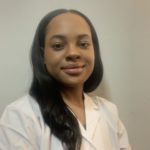 A Journey Toward Mindfulness November 13, 2019 - In "A Journey Toward Mindfulness," Kelsey Robinson, SPT describes the steps she took to turn the effects of a crippling racist remark into a positive force for self-discovery. Rather than holding in her pain and self-doubt, she accepted an invitation to tell her story to young people. “In the process, I found my voice,” she notes. She encourages others to do the same. “Someone needs you,” she states. “The trials you face today will become your strength tomorrow as a clinician.”
A Journey Toward Mindfulness November 13, 2019 - In "A Journey Toward Mindfulness," Kelsey Robinson, SPT describes the steps she took to turn the effects of a crippling racist remark into a positive force for self-discovery. Rather than holding in her pain and self-doubt, she accepted an invitation to tell her story to young people. “In the process, I found my voice,” she notes. She encourages others to do the same. “Someone needs you,” she states. “The trials you face today will become your strength tomorrow as a clinician.”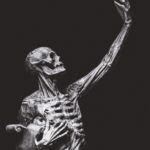 The Gift of a Quieted Breath November 13, 2019 - Hannah Vaca evokes an important learning moment in this moving and heartfelt poem, as she reflects on the gift a donor's body provides and how a donor's sacrifice impacts the lives of developing health professionals.
The Gift of a Quieted Breath November 13, 2019 - Hannah Vaca evokes an important learning moment in this moving and heartfelt poem, as she reflects on the gift a donor's body provides and how a donor's sacrifice impacts the lives of developing health professionals. Historical Perspectives in Art: The Value of Art History in a Pandemic: Teaching as a Healing Force November 12, 2019 - In this powerful reflection, Siobhan Conaty shows how art history as a health humanities discipline can provide two uniquely different (yet equally important) teaching methods for students reckoning with a health crisis. One negative (a critical reading of graphic pandemic images) and one positive (looking to art as a powerful healing instrument), each serves an important purpose. Conaty details the positive approach she recently chose for her students -- emphasizing art as a healing force.
Historical Perspectives in Art: The Value of Art History in a Pandemic: Teaching as a Healing Force November 12, 2019 - In this powerful reflection, Siobhan Conaty shows how art history as a health humanities discipline can provide two uniquely different (yet equally important) teaching methods for students reckoning with a health crisis. One negative (a critical reading of graphic pandemic images) and one positive (looking to art as a powerful healing instrument), each serves an important purpose. Conaty details the positive approach she recently chose for her students -- emphasizing art as a healing force.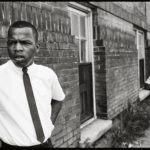 The Persisting Values of Humanism, Integrity, and Truth-Seeking November 12, 2019 - Presenting the Fall 2020 issue of JHR to readers, Editor-in-Chief Sarah Blanton looks deeply into the role of humanities in healing and inspiring a nation facing challenges both physical and societal. Remembering the last words of Representative John Lewis urging Americans to “stand up, speak up and speak out,” Blanton pledges the commitment of JHR to presenting narratives, both personal and collective, that encourage fundamental healing. She introduces with this issue a themed series dedicated to topics of social justice as well as the experiences of people caught in the COVID-19 pandemic. “We believe, in moments like these, that the next right step begins with seeing each other more clearly and using the humanities as a conduit for exploring the lived experience of others.”
The Persisting Values of Humanism, Integrity, and Truth-Seeking November 12, 2019 - Presenting the Fall 2020 issue of JHR to readers, Editor-in-Chief Sarah Blanton looks deeply into the role of humanities in healing and inspiring a nation facing challenges both physical and societal. Remembering the last words of Representative John Lewis urging Americans to “stand up, speak up and speak out,” Blanton pledges the commitment of JHR to presenting narratives, both personal and collective, that encourage fundamental healing. She introduces with this issue a themed series dedicated to topics of social justice as well as the experiences of people caught in the COVID-19 pandemic. “We believe, in moments like these, that the next right step begins with seeing each other more clearly and using the humanities as a conduit for exploring the lived experience of others.”  Re-Imagining Humanism in Rehabilitation November 8, 2018 - What does it mean to be a professional? What is professionalism? How do we help to develop professional formation in students and clinicians? How do we develop ethically-engaged clinicians? Is professionalism part of best practice, and why?
Re-Imagining Humanism in Rehabilitation November 8, 2018 - What does it mean to be a professional? What is professionalism? How do we help to develop professional formation in students and clinicians? How do we develop ethically-engaged clinicians? Is professionalism part of best practice, and why?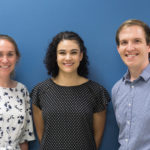 Pitfalls and Pearls of Persistent Pain November 8, 2018 - As the subject of chronic pain and its treatment has become crucially important in today’s healthcare and rehabilitation environments, we offer the accounts of three physical therapists who have encountered patients with persistent pain and learned valuable lessons in the process. The article shows how a humanistic approach—involving factors such as trust, shared decision-making, and empathy—can add a psychosocial dimension to the treatment of chronic pain, and work to achieve more lasting results.
Pitfalls and Pearls of Persistent Pain November 8, 2018 - As the subject of chronic pain and its treatment has become crucially important in today’s healthcare and rehabilitation environments, we offer the accounts of three physical therapists who have encountered patients with persistent pain and learned valuable lessons in the process. The article shows how a humanistic approach—involving factors such as trust, shared decision-making, and empathy—can add a psychosocial dimension to the treatment of chronic pain, and work to achieve more lasting results. Call for Submissions: Journal of Humanities in Rehabilitation Physical Therapy Student Essay Contest November 8, 2018 - The Consortium for Humanities, Ethics and Professionalism (CHEP) of the American Council of Academic Physical Therapy (ACAPT) advocates for the importance of the humanities, ethics, and professionalism in physical therapy education practice because excellent clinical practice requires the ability to make meaningful connections with patients and to make decisions in unclear or vulnerable circumstances.
Call for Submissions: Journal of Humanities in Rehabilitation Physical Therapy Student Essay Contest November 8, 2018 - The Consortium for Humanities, Ethics and Professionalism (CHEP) of the American Council of Academic Physical Therapy (ACAPT) advocates for the importance of the humanities, ethics, and professionalism in physical therapy education practice because excellent clinical practice requires the ability to make meaningful connections with patients and to make decisions in unclear or vulnerable circumstances. Life Transformed Through Movement November 8, 2018 - A photograph, a memory of the sound of wind in the trees, of a chill in the air, invoke a personal reflection of a life focused on movement and care. In her delicate poem, Kathryn Zalewski, PT, PhD, MPA,uses Gregg Fuhrman, MPT, OCS, CFMT, CMTPT’s image to guide her description of life as a physical therapist, a mother, and a teacher — in whispers.
Life Transformed Through Movement November 8, 2018 - A photograph, a memory of the sound of wind in the trees, of a chill in the air, invoke a personal reflection of a life focused on movement and care. In her delicate poem, Kathryn Zalewski, PT, PhD, MPA,uses Gregg Fuhrman, MPT, OCS, CFMT, CMTPT’s image to guide her description of life as a physical therapist, a mother, and a teacher — in whispers. Commonality in Communication November 8, 2018 - ACAPT Consortium for the Humanities, Ethics, and Professionalism (CHEP) and JHR student essay contest finalist: Becky Mercuro, SPT shares her experience changing a patient’s outlook, and recovery, by speaking to her in her native tongue—not just about her condition and treatment, but also about her life and her “hope of healing.”
Commonality in Communication November 8, 2018 - ACAPT Consortium for the Humanities, Ethics, and Professionalism (CHEP) and JHR student essay contest finalist: Becky Mercuro, SPT shares her experience changing a patient’s outlook, and recovery, by speaking to her in her native tongue—not just about her condition and treatment, but also about her life and her “hope of healing.”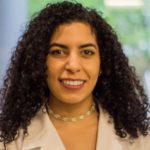 Unlocking Inner Joy November 8, 2018 - ACAPT Consortium for the Humanities, Ethics, and Professionalism (CHEP) and JHR student essay contest finalist: In this light-hearted account of meeting a former gymnast in the rehabilitation room of a nursing home, Mercedes Aguirre shows how listening to a patient’s story and finding common ground can boost results exponentially.
Unlocking Inner Joy November 8, 2018 - ACAPT Consortium for the Humanities, Ethics, and Professionalism (CHEP) and JHR student essay contest finalist: In this light-hearted account of meeting a former gymnast in the rehabilitation room of a nursing home, Mercedes Aguirre shows how listening to a patient’s story and finding common ground can boost results exponentially. Eye Spy for Physical Therapy Graduate Education November 8, 2018 - Cindy B. Dodds, PT, PhD, PCS and colleagues describe how their successful pilot program took physical therapy students out of the university setting and into a local art museum for a unique experience of observation using visual thinking strategies.
Eye Spy for Physical Therapy Graduate Education November 8, 2018 - Cindy B. Dodds, PT, PhD, PCS and colleagues describe how their successful pilot program took physical therapy students out of the university setting and into a local art museum for a unique experience of observation using visual thinking strategies. Resources: Fall 2018 November 8, 2018 - Speechless: For two seasons, Speechless looks at the struggles and triumphs of an American family with a son with a disability. One of four kids, JJ DiMeo—played by Micah Fowler, who has cerebral palsy himself—is a teen growing up with a physical disability who uses a communication device to speak.
Resources: Fall 2018 November 8, 2018 - Speechless: For two seasons, Speechless looks at the struggles and triumphs of an American family with a son with a disability. One of four kids, JJ DiMeo—played by Micah Fowler, who has cerebral palsy himself—is a teen growing up with a physical disability who uses a communication device to speak.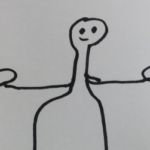 Three Voices at the Table November 8, 2018 - In a fascinating, creative account, Tania Riske, MS/CCC-SLP, and CeCelia Zorn, PhD, RN let the voices of a patient, his wife, and his speech/language pathologist describe the challenges, small triumphs, and human connections involved in the treatment of primary progressive aphasia—a rare neurological disease that causes the total loss of speech.
Three Voices at the Table November 8, 2018 - In a fascinating, creative account, Tania Riske, MS/CCC-SLP, and CeCelia Zorn, PhD, RN let the voices of a patient, his wife, and his speech/language pathologist describe the challenges, small triumphs, and human connections involved in the treatment of primary progressive aphasia—a rare neurological disease that causes the total loss of speech.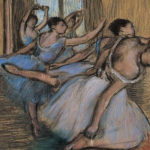 Historical Perspectives in Art | Edgar Degas: Celebrating Beauty in Movement September 11, 2018 - Melissa McCune, SPT takes you into the world of Edgar Degas as he captures the art of physical movement. She shows us how, at a time when art focused on the face, the clothing, perhaps the hands, Degas chose to focus his paintings “on the body as a whole to reveal its objective beauty and intimate connection with the space around it.”
Historical Perspectives in Art | Edgar Degas: Celebrating Beauty in Movement September 11, 2018 - Melissa McCune, SPT takes you into the world of Edgar Degas as he captures the art of physical movement. She shows us how, at a time when art focused on the face, the clothing, perhaps the hands, Degas chose to focus his paintings “on the body as a whole to reveal its objective beauty and intimate connection with the space around it.”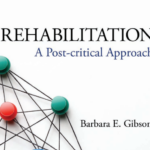 Author Reflection: Rehabilitation: A Post-Critical Approach April 30, 2018 - Barbara E. Gibson, PhD, Associate Professor at the University of Toronto, discusses her book: Rehabilitation: A Post-Critical Approach, a text for rehabilitation science students to engage with critical social theories, providing a framework to think through the application of these ideas to research and practice.
Author Reflection: Rehabilitation: A Post-Critical Approach April 30, 2018 - Barbara E. Gibson, PhD, Associate Professor at the University of Toronto, discusses her book: Rehabilitation: A Post-Critical Approach, a text for rehabilitation science students to engage with critical social theories, providing a framework to think through the application of these ideas to research and practice. 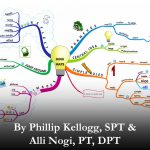 Mind Mapping: Using Visual Thinking to Improve Patient Care and Quality of Life April 30, 2018 - Phillip Kellogg, SPT, and Ali Nogi, PT, DPT, present an overview of the practice of Mind Mapping—a visual-thinking tool used for organizing information. Citing Dr. George Huba’s use of Mind Mapping to support his independence as he lives with dementia, the authors make the case for the technique’s effective application in healthcare and rehabilitation.
Mind Mapping: Using Visual Thinking to Improve Patient Care and Quality of Life April 30, 2018 - Phillip Kellogg, SPT, and Ali Nogi, PT, DPT, present an overview of the practice of Mind Mapping—a visual-thinking tool used for organizing information. Citing Dr. George Huba’s use of Mind Mapping to support his independence as he lives with dementia, the authors make the case for the technique’s effective application in healthcare and rehabilitation.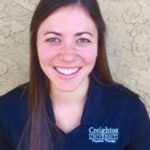 Student Essay Contest Winner: Mrs. Z April 30, 2018 - Congratulations to Creighton Doctor of Physical Therapy Program graduate student, Hayley Rieger, the winner of the inaugural physical therapy essay contest, co-sponsored by the ACAPT Consortium for the Humanities, Ethics, and Professionalism (CHEP) and JHR! She reflects how her patient taught her that “helping someone reach their full potential means hearing the song in their heart and finding a way to sing it back.”
Student Essay Contest Winner: Mrs. Z April 30, 2018 - Congratulations to Creighton Doctor of Physical Therapy Program graduate student, Hayley Rieger, the winner of the inaugural physical therapy essay contest, co-sponsored by the ACAPT Consortium for the Humanities, Ethics, and Professionalism (CHEP) and JHR! She reflects how her patient taught her that “helping someone reach their full potential means hearing the song in their heart and finding a way to sing it back.”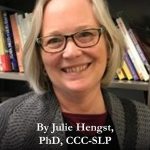 Bringing Therapy Home: Book Review of One Hundred Names for Love April 30, 2018 - Professor Julie Hengst, PhD, reviews One Hundred Names for Love: A Stroke, a Marriage, and the Language of Healing, by Diane Ackerman. The book chronicles how Ackerman responded to her husband’s aphasia by turning their home into an enriched rehabilitative environment that challenged his cognitive functions daily, and achieved inspiring results.
Bringing Therapy Home: Book Review of One Hundred Names for Love April 30, 2018 - Professor Julie Hengst, PhD, reviews One Hundred Names for Love: A Stroke, a Marriage, and the Language of Healing, by Diane Ackerman. The book chronicles how Ackerman responded to her husband’s aphasia by turning their home into an enriched rehabilitative environment that challenged his cognitive functions daily, and achieved inspiring results. Insights from the Margins of Thought and Experience April 30, 2018 - Welcome to the Spring 2018 Issue of the Journal of Humanities in Rehabilitation. We explore how agents of change are frequently those individuals or communities, creatively and courageously asking challenging questions and seeking new perspectives.
Insights from the Margins of Thought and Experience April 30, 2018 - Welcome to the Spring 2018 Issue of the Journal of Humanities in Rehabilitation. We explore how agents of change are frequently those individuals or communities, creatively and courageously asking challenging questions and seeking new perspectives.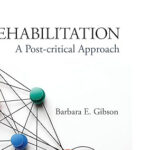 Introducing a New Section of JHR Dedicated to ‘Critical’ Rehabilitation Research and Scholarship April 30, 2018 - Jenny Setchell, PhD, BScPT and Barbara Gibson, PhD are co- editors of a new section in JHR dedicated to publishing research and scholarship that employ critical perspectives on rehabilitation. They seek submissions applying critical, post structural, or postmodern theories including original research, think pieces, and theoretical discussions of the philosophical basis of rehabilitation practices, education and/or research.
Introducing a New Section of JHR Dedicated to ‘Critical’ Rehabilitation Research and Scholarship April 30, 2018 - Jenny Setchell, PhD, BScPT and Barbara Gibson, PhD are co- editors of a new section in JHR dedicated to publishing research and scholarship that employ critical perspectives on rehabilitation. They seek submissions applying critical, post structural, or postmodern theories including original research, think pieces, and theoretical discussions of the philosophical basis of rehabilitation practices, education and/or research. See Me April 30, 2018 - Amanda LaLonde, PT, DPT, GCS shares an original poem that captures the feelings of frightened, defiant patients in an impersonal healthcare system. In her author commentary, she then presents a challenge to herself and her colleagues to return humility, humanity, and empathy to healthcare.
See Me April 30, 2018 - Amanda LaLonde, PT, DPT, GCS shares an original poem that captures the feelings of frightened, defiant patients in an impersonal healthcare system. In her author commentary, she then presents a challenge to herself and her colleagues to return humility, humanity, and empathy to healthcare.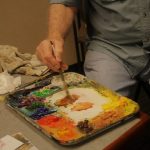 A Canvas, Some Paint—and a Famous Artist Has Changed the Game of Cardiac Rehab April 30, 2018 - Sarah Smith, SPT, and Kathy Lee Bishop, PT, DPT, report on Art with Heart, a creative program for patients recovering from cardiac surgery. The classes, initiated by artist Wayland Moore following his own triple-bypass surgery, address the healing of the minds and souls of recovering patients.
A Canvas, Some Paint—and a Famous Artist Has Changed the Game of Cardiac Rehab April 30, 2018 - Sarah Smith, SPT, and Kathy Lee Bishop, PT, DPT, report on Art with Heart, a creative program for patients recovering from cardiac surgery. The classes, initiated by artist Wayland Moore following his own triple-bypass surgery, address the healing of the minds and souls of recovering patients. 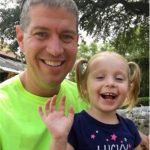 Healing from ‘Brokenness’: The Story of Corinne April 30, 2018 - In this tender account of his family’s fostering and later adoption of Corinne, a physically traumatized infant born with neonatal abstinence syndrome, Chad Jackson, PT, DPT, OCS, details how a healthcare provider’s empathy, empowerment, and connection form a crucial aspect of the healing process.
Healing from ‘Brokenness’: The Story of Corinne April 30, 2018 - In this tender account of his family’s fostering and later adoption of Corinne, a physically traumatized infant born with neonatal abstinence syndrome, Chad Jackson, PT, DPT, OCS, details how a healthcare provider’s empathy, empowerment, and connection form a crucial aspect of the healing process.  Inside “Christina’s World” October 17, 2017 - Working with medical students at Penn State University, J.O. Ballard, MD, uses the art of Andrew Wyeth to sharpen their observational skills and help them develop an empathic understanding of the patient’s lived experience of illness.
Inside “Christina’s World” October 17, 2017 - Working with medical students at Penn State University, J.O. Ballard, MD, uses the art of Andrew Wyeth to sharpen their observational skills and help them develop an empathic understanding of the patient’s lived experience of illness.  The Game October 17, 2017 - In her poem “The Game,” Anju Kanwar marks the slow progress of time one experiences when haunted by painful thoughts and memories, in the early-morning hours of solitude following a loss.
The Game October 17, 2017 - In her poem “The Game,” Anju Kanwar marks the slow progress of time one experiences when haunted by painful thoughts and memories, in the early-morning hours of solitude following a loss.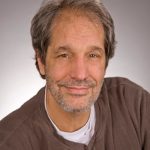 Imprisoned October 17, 2017 - Vivid, sensorial reflections–of sight, of sound, of touch–create an intimately familiar and entirely unique lyric contemplation on memory and an imagined life-changing injury in Bruce H. Greenfield’s “Imprisoned.”
Imprisoned October 17, 2017 - Vivid, sensorial reflections–of sight, of sound, of touch–create an intimately familiar and entirely unique lyric contemplation on memory and an imagined life-changing injury in Bruce H. Greenfield’s “Imprisoned.”  Two Dreams about Losing My Body October 17, 2017 - Body, my house my horse my hound, what will I do when you are fallen…? Johanna Lutrell, PhD, describes the experience of losing her body after a sudden onset of Guillain-Barre Syndrome.
Two Dreams about Losing My Body October 17, 2017 - Body, my house my horse my hound, what will I do when you are fallen…? Johanna Lutrell, PhD, describes the experience of losing her body after a sudden onset of Guillain-Barre Syndrome.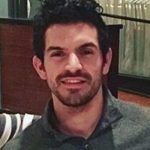 The True Weight of Stigma October 17, 2017 - In a thoughtful and sensitive report, physical therapist Cameron Jadali discusses the lessons learned in his interaction with an overweight patient–reflecting on his previously unrealized biases regarding weight.
The True Weight of Stigma October 17, 2017 - In a thoughtful and sensitive report, physical therapist Cameron Jadali discusses the lessons learned in his interaction with an overweight patient–reflecting on his previously unrealized biases regarding weight. Toward a New Veteranology October 17, 2017 - Independent scholar Sue Smith reviews John M. Kinder’s Paying with Their Bodies: American War and the Problem of the Disabled Veteran. In the book, Kinder calls for a radical transformation of rehabilitation from a medical model to a social model of disability.
Toward a New Veteranology October 17, 2017 - Independent scholar Sue Smith reviews John M. Kinder’s Paying with Their Bodies: American War and the Problem of the Disabled Veteran. In the book, Kinder calls for a radical transformation of rehabilitation from a medical model to a social model of disability.  Engaged Citizenship October 17, 2017 - Welcome to the Fall 2017 issue of the Journal for Humanities in Rehabilitation. We invite you to consider the meaning of engaged citizenship in your curricula and ways the humanities provide creative and innovative intersections of the work of rehabilitation in society.
Engaged Citizenship October 17, 2017 - Welcome to the Fall 2017 issue of the Journal for Humanities in Rehabilitation. We invite you to consider the meaning of engaged citizenship in your curricula and ways the humanities provide creative and innovative intersections of the work of rehabilitation in society. The Power of Stories for Patients and Providers October 17, 2017 - Robyn Fivush, PhD, argues that sharing our stories with others, and listening to their stories, is a fundamental way of connecting–for patients and medical providers alike. She reports on emerging research that demonstrates the power of stories to build empathy and promote healing.
The Power of Stories for Patients and Providers October 17, 2017 - Robyn Fivush, PhD, argues that sharing our stories with others, and listening to their stories, is a fundamental way of connecting–for patients and medical providers alike. She reports on emerging research that demonstrates the power of stories to build empathy and promote healing.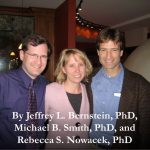 Rehabilitating Citizenship: Lessons from Across the Curriculum October 17, 2017 - Professors Jeffrey Bernstein, Michael Smith, and Rebecca Nowacek make the case that being a good citizen requires understanding the lives other people experience–their joy and suffering–and working to ease the troubles others face.
Rehabilitating Citizenship: Lessons from Across the Curriculum October 17, 2017 - Professors Jeffrey Bernstein, Michael Smith, and Rebecca Nowacek make the case that being a good citizen requires understanding the lives other people experience–their joy and suffering–and working to ease the troubles others face.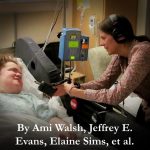 Bedside Audio Storytelling for Hospital Patients: A Program Overview October 17, 2017 - Authors Ami Walsh, MFA, Jeffrey Evans, PhD, and colleagues describe how digital technology is being used to create patient-centered audio stories in a dynamic program at Michigan Medicine. Audio storytelling, they report, helps to honor a patient’s sense of self and offer comfort and hope.
Bedside Audio Storytelling for Hospital Patients: A Program Overview October 17, 2017 - Authors Ami Walsh, MFA, Jeffrey Evans, PhD, and colleagues describe how digital technology is being used to create patient-centered audio stories in a dynamic program at Michigan Medicine. Audio storytelling, they report, helps to honor a patient’s sense of self and offer comfort and hope.  Call for Papers and Instructions to Submit October 16, 2017 - The Journal of Humanities in Rehabilitation welcomes submissions regarding the human experience of patients, families and healthcare providers involved in therapy and rehabilitation. Special Call: ACAPT Consortium for Humanities, Ethics and Professionalism and JHR Physical Therapy Student Essay Contest submission guidelines (deadline January 5, 2018).
Call for Papers and Instructions to Submit October 16, 2017 - The Journal of Humanities in Rehabilitation welcomes submissions regarding the human experience of patients, families and healthcare providers involved in therapy and rehabilitation. Special Call: ACAPT Consortium for Humanities, Ethics and Professionalism and JHR Physical Therapy Student Essay Contest submission guidelines (deadline January 5, 2018). Resources: Fall 2017 October 16, 2017 - Collection of links and resources for health humanities with potential applications in rehabilitation sciences education, clinical care and research.
Resources: Fall 2017 October 16, 2017 - Collection of links and resources for health humanities with potential applications in rehabilitation sciences education, clinical care and research. Frida Kahlo’s Backbone May 2, 2017 - Through a carefully constructed and thoughtful poem, Michael J. Leach, PhD, explores the tumultuous life and art of Frida Khalo revealing the tremendous strength that underlies this artist’s work.
Frida Kahlo’s Backbone May 2, 2017 - Through a carefully constructed and thoughtful poem, Michael J. Leach, PhD, explores the tumultuous life and art of Frida Khalo revealing the tremendous strength that underlies this artist’s work.  The Other Side of the Bedrail May 2, 2017 - After nearly 20 years of clinical practice, physical therapist Mary Pugh Alligood finds herself reflecting on lessons learned from the other side of patient care and poignantly describes her experiences after a diagnosis of inoperable brain cancer tumor and colostomy surgery.
The Other Side of the Bedrail May 2, 2017 - After nearly 20 years of clinical practice, physical therapist Mary Pugh Alligood finds herself reflecting on lessons learned from the other side of patient care and poignantly describes her experiences after a diagnosis of inoperable brain cancer tumor and colostomy surgery. Lessons from the Lake May 2, 2017 - Through her description of a personal encounter with an acquaintance devastated by a stroke, Regina Kaufman, PT, EdD, MS, NCS, contemplates how personal connection during therapy sessions may enable patients to re-embody the world and social roles that they have lost.
Lessons from the Lake May 2, 2017 - Through her description of a personal encounter with an acquaintance devastated by a stroke, Regina Kaufman, PT, EdD, MS, NCS, contemplates how personal connection during therapy sessions may enable patients to re-embody the world and social roles that they have lost.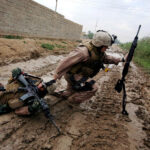 War Photography: The Physical and Psychological Costs May 2, 2017 - Exploring the lives and careers of 12 extraordinary war photographers, Anthony Feinstein, PhD, underscores the grave danger these visual historians encounter when covering conflict and raises our awareness of the individuals behind the camera, who risk their lives to bear witness to violence and suffering.
War Photography: The Physical and Psychological Costs May 2, 2017 - Exploring the lives and careers of 12 extraordinary war photographers, Anthony Feinstein, PhD, underscores the grave danger these visual historians encounter when covering conflict and raises our awareness of the individuals behind the camera, who risk their lives to bear witness to violence and suffering.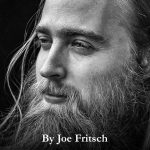 Poet in Profile: Larry Eigner May 2, 2017 - English doctoral student Joe Fritsch provides an introductory look into the complex visual poetics of Larry Eigner (1926-1996), a poet with cerebral palsy, who developed his artistic practice over a lifetime.
Poet in Profile: Larry Eigner May 2, 2017 - English doctoral student Joe Fritsch provides an introductory look into the complex visual poetics of Larry Eigner (1926-1996), a poet with cerebral palsy, who developed his artistic practice over a lifetime. Blurring Lines Between Arts and Sciences May 2, 2017 - Welcome to the Spring 2017 issue of the Journal for Humanities in Rehabilitation. We celebrate educators who blur the lines of arts and sciences as they reveal the true interconnections which drive both innovation across fields and also a deeper meaning individually within ourselves.
Blurring Lines Between Arts and Sciences May 2, 2017 - Welcome to the Spring 2017 issue of the Journal for Humanities in Rehabilitation. We celebrate educators who blur the lines of arts and sciences as they reveal the true interconnections which drive both innovation across fields and also a deeper meaning individually within ourselves.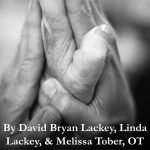 Healing Hands May 2, 2017 - Reflecting on his devoted relationship to his wife, Linda, and her rehabilitation with Occupational Therapist, Melissa Tober, David Bryan Lackey shares the powerful story that inspired the photograph “Healing Hands” and the resultant formation of the Healing Hands clinic which showcases professional images of hands from around the world.
Healing Hands May 2, 2017 - Reflecting on his devoted relationship to his wife, Linda, and her rehabilitation with Occupational Therapist, Melissa Tober, David Bryan Lackey shares the powerful story that inspired the photograph “Healing Hands” and the resultant formation of the Healing Hands clinic which showcases professional images of hands from around the world.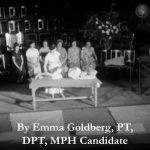 Our Roots as Rehabilitation Specialists May 2, 2017 - Vintage 1951 video footage from the first World Confederation of Physical Therapy (WCPT) lays the framework for historical reflections on the evolution of Physical Therapy and rehabilitation, tracing roots of professional identity to distinct cultures and practices from around the world.
Our Roots as Rehabilitation Specialists May 2, 2017 - Vintage 1951 video footage from the first World Confederation of Physical Therapy (WCPT) lays the framework for historical reflections on the evolution of Physical Therapy and rehabilitation, tracing roots of professional identity to distinct cultures and practices from around the world.  Healing Bodies with Diverse Minds May 2, 2017 - In her book, Rethinking Thought, Laura Otis, PhD, explores how differently people receive information and applies these lessons to create strategies for improving patient centered care and maximizing learning.
Healing Bodies with Diverse Minds May 2, 2017 - In her book, Rethinking Thought, Laura Otis, PhD, explores how differently people receive information and applies these lessons to create strategies for improving patient centered care and maximizing learning.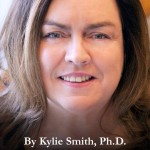 Recovery and Reflection: The Role of History in Nursing Education November 30, 2016 - Dr. Kylie Smith explores the history of mental health nursing by studying the therapeutic role of nurses. By examining the social and historical context of nursing practice, she highlights the humanities as powerful educational tools that allow one to critically analyze the assumptions and narratives that underpin modern health care practice.
Recovery and Reflection: The Role of History in Nursing Education November 30, 2016 - Dr. Kylie Smith explores the history of mental health nursing by studying the therapeutic role of nurses. By examining the social and historical context of nursing practice, she highlights the humanities as powerful educational tools that allow one to critically analyze the assumptions and narratives that underpin modern health care practice.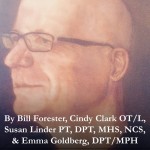 Art Saved My Life November 30, 2016 - Bill Forester reflects on re-discovering himself after suffering a massive hemorrhagic stroke. Realizing that he would not be returning to work, Bill and his family devoted their time to his rehabilitation, embarking on an ambitious path of trial and error and the ultimate discovery of painting as a medium for rehabilitation.
Art Saved My Life November 30, 2016 - Bill Forester reflects on re-discovering himself after suffering a massive hemorrhagic stroke. Realizing that he would not be returning to work, Bill and his family devoted their time to his rehabilitation, embarking on an ambitious path of trial and error and the ultimate discovery of painting as a medium for rehabilitation.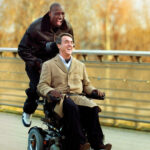 The Intouchables, A Reflection on Disability and Caregiving: Who Helps Whom? November 30, 2016 - The Olivier Nakache and Eric Toledano film “The Intouchables” poignantly challenges traditional perceptions of disability by asking viewers to contemplate what it truly means to live a full life. The film has served as a powerful educational tool for Sarah Caston, Assistant Professor in the Wingate University Department of Physical Therapy.
The Intouchables, A Reflection on Disability and Caregiving: Who Helps Whom? November 30, 2016 - The Olivier Nakache and Eric Toledano film “The Intouchables” poignantly challenges traditional perceptions of disability by asking viewers to contemplate what it truly means to live a full life. The film has served as a powerful educational tool for Sarah Caston, Assistant Professor in the Wingate University Department of Physical Therapy. Gifts of Wisdom November 30, 2016 - Welcome to the Fall 2016 issue of the Journal for Humanities in Rehabilitation. In a time when civil discourse is challenged by an atmosphere of socio-political unrest, the humanities provide a landscape to foster mindful reflection, to hear our shared stories of suffering and resilience, and to see the expansive potential of art to create meaning in our lives.
Gifts of Wisdom November 30, 2016 - Welcome to the Fall 2016 issue of the Journal for Humanities in Rehabilitation. In a time when civil discourse is challenged by an atmosphere of socio-political unrest, the humanities provide a landscape to foster mindful reflection, to hear our shared stories of suffering and resilience, and to see the expansive potential of art to create meaning in our lives.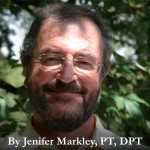 Poet in Profile: John O’Donohue November 30, 2016 - Dr. Jenifer Markley examines how the poetry of John O’Donohue challenges healthcare workers to reassess their interactions with suffering “at the intersection of the sacred with the profane."
Poet in Profile: John O’Donohue November 30, 2016 - Dr. Jenifer Markley examines how the poetry of John O’Donohue challenges healthcare workers to reassess their interactions with suffering “at the intersection of the sacred with the profane."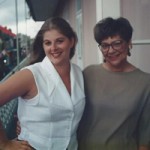 Remnants of Her November 30, 2016 - Program Director in Nutrition and Dietetics at the University of Southern Mississipi, Dr. Holly Huye shares a poignant reflection of her mother’s struggles with dementia and a family’s dedication to preserving memories.
Remnants of Her November 30, 2016 - Program Director in Nutrition and Dietetics at the University of Southern Mississipi, Dr. Holly Huye shares a poignant reflection of her mother’s struggles with dementia and a family’s dedication to preserving memories.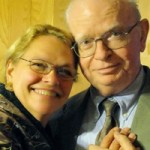 Sharing Spirits and Silence is Strength November 30, 2016 - Struggling with severe aphasia after her stroke, Yvette Warren offers a truly powerful poetic expression of her journey and reminds us of the strength in silence.
Sharing Spirits and Silence is Strength November 30, 2016 - Struggling with severe aphasia after her stroke, Yvette Warren offers a truly powerful poetic expression of her journey and reminds us of the strength in silence. The Humanities and Speech-Language Pathology in Rehabilitation November 30, 2016 - Dr. Jacqueline Laures-Gore, Director of the Aphasia and Motor Speech Disorders Research Lab at Georgia State University, describes how speech-language pathologists have sought to use modes of artistic expression to link humanistic endeavor with the science of clinical work.
The Humanities and Speech-Language Pathology in Rehabilitation November 30, 2016 - Dr. Jacqueline Laures-Gore, Director of the Aphasia and Motor Speech Disorders Research Lab at Georgia State University, describes how speech-language pathologists have sought to use modes of artistic expression to link humanistic endeavor with the science of clinical work. Resources: Fall 2016 November 8, 2016 - Collection of links and resources for health humanities with potential applications in rehabilitation sciences education, clinical care and research.
Resources: Fall 2016 November 8, 2016 - Collection of links and resources for health humanities with potential applications in rehabilitation sciences education, clinical care and research.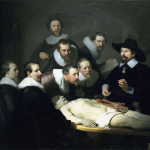 Rembrandt’s Anatomical Portraits June 20, 2016 - Historical Perspectives in Art Section Editor Siobhan Conaty metaphorically dissects Dutch painter Rembrandt van Rijn's life and work to better inform our understanding of the impact of art on the study of anatomy.
Rembrandt’s Anatomical Portraits June 20, 2016 - Historical Perspectives in Art Section Editor Siobhan Conaty metaphorically dissects Dutch painter Rembrandt van Rijn's life and work to better inform our understanding of the impact of art on the study of anatomy. 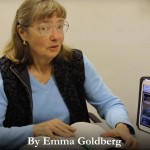 Finding Your Voice Through Poetry June 20, 2016 - Maria Birdseye, joined by her speech therapist Rita Lor demonstrates the power of poetry in light of the challenges of Parkinson's disease.
Finding Your Voice Through Poetry June 20, 2016 - Maria Birdseye, joined by her speech therapist Rita Lor demonstrates the power of poetry in light of the challenges of Parkinson's disease. 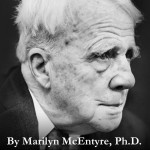 Poet in Profile – Robert Frost (1874-1963) June 20, 2016 - Poetry Section Editor Marilyn McEntyre revisits the classic Robert Frost and challenges readers to use Frost's words to reflect on the way we interact with our patients.
Poet in Profile – Robert Frost (1874-1963) June 20, 2016 - Poetry Section Editor Marilyn McEntyre revisits the classic Robert Frost and challenges readers to use Frost's words to reflect on the way we interact with our patients. 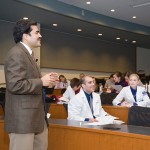 Disabled Souls June 20, 2016 - Zoher Kapasi’s uses poetry to respond to India’s stark healthcare inequality in the 1980s while calling attention to the role perspective plays in the way we perceive ourselves and others.
Disabled Souls June 20, 2016 - Zoher Kapasi’s uses poetry to respond to India’s stark healthcare inequality in the 1980s while calling attention to the role perspective plays in the way we perceive ourselves and others. Dual Impact June 20, 2016 - Amanda Lalonde’s clinical narrative reflects on the power of her patient’s resilience, and its impact on both his recovery and her sense of self as a clinician.
Dual Impact June 20, 2016 - Amanda Lalonde’s clinical narrative reflects on the power of her patient’s resilience, and its impact on both his recovery and her sense of self as a clinician.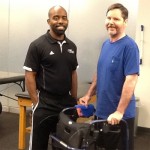 It’s All Good June 20, 2016 - Veteran poet Hugh Suggs uses his craft to find meaning in suffering and offer hope through the healing language of poetry.
It’s All Good June 20, 2016 - Veteran poet Hugh Suggs uses his craft to find meaning in suffering and offer hope through the healing language of poetry.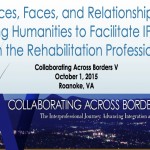 Collaborating Across Borders V – October 1, 2015 November 10, 2015 - Voices, Faces, and Relationships: Using Humanities to Facilitate IPE with the Rehabilitation Professions The JHR Editorial Board led a discussion group at the Collaborating Across Borders V conference in Roanoke, Virginia October 1. The theme of the conference was “ The Interprofesssional Journey: Advancing Integration and Impact” Topic/Subject: This discussion group explored how […]
Collaborating Across Borders V – October 1, 2015 November 10, 2015 - Voices, Faces, and Relationships: Using Humanities to Facilitate IPE with the Rehabilitation Professions The JHR Editorial Board led a discussion group at the Collaborating Across Borders V conference in Roanoke, Virginia October 1. The theme of the conference was “ The Interprofesssional Journey: Advancing Integration and Impact” Topic/Subject: This discussion group explored how […] About Visual Arts Submissions January 20, 2015 - Visual arts submissions may be submitted in several different genres, including photos, videos, original painting or artwork. For example, photo or video submissions may include collections of original photography or other multimedia to portray or analyze real issues or relationships that represent the humanities in the rehabilitation sciences. Include a brief reflective text with such […]
About Visual Arts Submissions January 20, 2015 - Visual arts submissions may be submitted in several different genres, including photos, videos, original painting or artwork. For example, photo or video submissions may include collections of original photography or other multimedia to portray or analyze real issues or relationships that represent the humanities in the rehabilitation sciences. Include a brief reflective text with such […]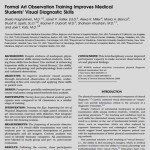 About Research Reports January 20, 2015 - Original Research submissions should follow a traditional approach with a hypothesis and statistical analysis to support conclusions. Manuscripts should be limited to 4000 words of text (Introduction, Methods, Results, Discussion and Conclusions) and include an abstract of no more than 250 words (Background, Objective, Method, Results and Conclusion). Submissions should include a separate title page […]
About Research Reports January 20, 2015 - Original Research submissions should follow a traditional approach with a hypothesis and statistical analysis to support conclusions. Manuscripts should be limited to 4000 words of text (Introduction, Methods, Results, Discussion and Conclusions) and include an abstract of no more than 250 words (Background, Objective, Method, Results and Conclusion). Submissions should include a separate title page […] About Letters to the Editors October 3, 2014 - Letter to the Editor submissions should provide timely, thoughtful dialogue on a recently published article in The Journal of Humanities in Rehabilitation. Letters are published at the discretion of the Editorial Board and the Board reserves the right to solicit a response from the author(s) of the cited article. Letters should be no more than […]
About Letters to the Editors October 3, 2014 - Letter to the Editor submissions should provide timely, thoughtful dialogue on a recently published article in The Journal of Humanities in Rehabilitation. Letters are published at the discretion of the Editorial Board and the Board reserves the right to solicit a response from the author(s) of the cited article. Letters should be no more than […]
TOP

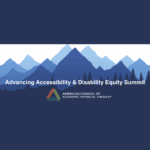 The Advancing Accessibility and Disability Equity Summit: An Introduction and Reflection on Key Take-Aways May 20, 2025
The Advancing Accessibility and Disability Equity Summit: An Introduction and Reflection on Key Take-Aways May 20, 2025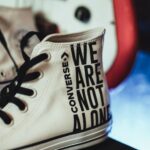 We Are No Longer Alone: Student Panelist Reflections on the Advancing Accessibility and Disability Equity Summit May 6, 2025
We Are No Longer Alone: Student Panelist Reflections on the Advancing Accessibility and Disability Equity Summit May 6, 2025 Accessibility Accommodations on the National Physical Therapy Examination: An Exploratory-Descriptive Qualitative Study March 13, 2025
Accessibility Accommodations on the National Physical Therapy Examination: An Exploratory-Descriptive Qualitative Study March 13, 2025 Learning From Experiences of Chronic Illness: A Book Review of The Room Sinatra Died In and Other Medically Adjacent Stories March 4, 2025
Learning From Experiences of Chronic Illness: A Book Review of The Room Sinatra Died In and Other Medically Adjacent Stories March 4, 2025 Utilizing Drama to Teach Intervention Strategies for Patients With Alzheimer’s Disease: The Intersection of Humanities and Clinical Science March 4, 2025
Utilizing Drama to Teach Intervention Strategies for Patients With Alzheimer’s Disease: The Intersection of Humanities and Clinical Science March 4, 2025 Playful Practices: Reflections on Teaching About Narrative Roleplaying Games in Care Contexts September 23, 2024
Playful Practices: Reflections on Teaching About Narrative Roleplaying Games in Care Contexts September 23, 2024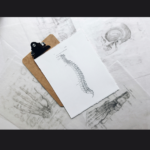 A Healthy Neck Should Disappear: a Phenomenological Anatomy of ‘Body-With-Neck-in-the-World’ to Inform Clinical Research and Practice September 23, 2024
A Healthy Neck Should Disappear: a Phenomenological Anatomy of ‘Body-With-Neck-in-the-World’ to Inform Clinical Research and Practice September 23, 2024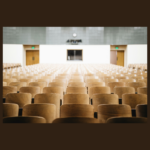 Examining Anti-Blackness in Canadian Physiotherapy Education Using Critical Race Theory and Critical Race Feminism as Theoretical Perspectives September 16, 2024
Examining Anti-Blackness in Canadian Physiotherapy Education Using Critical Race Theory and Critical Race Feminism as Theoretical Perspectives September 16, 2024 Milestones and Momentum: JHR’s Decade of Humanistic Progress and the Crossroads Ahead September 6, 2024
Milestones and Momentum: JHR’s Decade of Humanistic Progress and the Crossroads Ahead September 6, 2024 From Individuals With Aphasia and Brain Injuries to Poets: How the Book I Don’t Think I Did This Right Came to Be April 24, 2024
From Individuals With Aphasia and Brain Injuries to Poets: How the Book I Don’t Think I Did This Right Came to Be April 24, 2024 Considerations for Addressing Cisgenderism and Heterosexism in Canadian Outpatient Physiotherapy Clinics March 14, 2024
Considerations for Addressing Cisgenderism and Heterosexism in Canadian Outpatient Physiotherapy Clinics March 14, 2024 Poem Against Any More than a Glimpse of the Battered Athlete, or Time for Dr. Pepper, Duracell, Anthem Blue Cross Blue Shield, and the New Chevy Malibu February 28, 2024
Poem Against Any More than a Glimpse of the Battered Athlete, or Time for Dr. Pepper, Duracell, Anthem Blue Cross Blue Shield, and the New Chevy Malibu February 28, 2024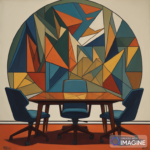 A Seat at the Table: A Reflection on Engaging Disabled People and Their Families in Research and Service Design November 21, 2023
A Seat at the Table: A Reflection on Engaging Disabled People and Their Families in Research and Service Design November 21, 2023 “Healing Through Connection: A Physical Therapy Student’s Experience Witnessing and Recovering from the Uvalde Tragedy of 2022” September 19, 2023
“Healing Through Connection: A Physical Therapy Student’s Experience Witnessing and Recovering from the Uvalde Tragedy of 2022” September 19, 2023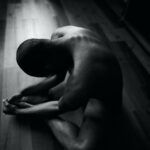 How Structural Oppression Has Shaped the Physical Therapy Profession and Access to Rehabilitative Services May 5, 2023
How Structural Oppression Has Shaped the Physical Therapy Profession and Access to Rehabilitative Services May 5, 2023 Towards a Global Knowledge Creation Strategy: Learning From Community-Based Rehabilitation May 2, 2023
Towards a Global Knowledge Creation Strategy: Learning From Community-Based Rehabilitation May 2, 2023 Getting to the Heart of the Patient-Provider Interaction: A Novel Theoretical Framework March 16, 2023
Getting to the Heart of the Patient-Provider Interaction: A Novel Theoretical Framework March 16, 2023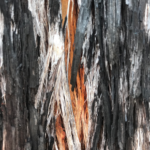 Doing Healthcare Research Differently: An Introduction to SocioHealthLab’s Special Video Series, Part 2 November 14, 2022
Doing Healthcare Research Differently: An Introduction to SocioHealthLab’s Special Video Series, Part 2 November 14, 2022 Accommodating Students With Disabilities in Professional Rehabilitation Programs: An Institutional Ethnography Informed Study November 14, 2022
Accommodating Students With Disabilities in Professional Rehabilitation Programs: An Institutional Ethnography Informed Study November 14, 2022 Implementing Expressive Writing in Outpatient Physical Therapy Clinics: Connecting Theoretical Foundations With Practical Strategies November 14, 2022
Implementing Expressive Writing in Outpatient Physical Therapy Clinics: Connecting Theoretical Foundations With Practical Strategies November 14, 2022 Call for Submissions: Journal of Humanities in Rehabilitation Physical Therapy Student Essay Contest November 14, 2022
Call for Submissions: Journal of Humanities in Rehabilitation Physical Therapy Student Essay Contest November 14, 2022 Editorial: Strange Bed-Fellows: Can the Humanities Help the Electronic Health Records Problem? April 25, 2022
Editorial: Strange Bed-Fellows: Can the Humanities Help the Electronic Health Records Problem? April 25, 2022 Humanities Instruction in Physical Therapy Education to Cultivate Empathy, Recognize Implicit Bias, and Enhance Communication: A Case Series April 25, 2022
Humanities Instruction in Physical Therapy Education to Cultivate Empathy, Recognize Implicit Bias, and Enhance Communication: A Case Series April 25, 2022 Eye Spy 2022: Improving Nonverbal Communication and Interprofessional Perceptions in Health Science Students April 25, 2022
Eye Spy 2022: Improving Nonverbal Communication and Interprofessional Perceptions in Health Science Students April 25, 2022 Doing Healthcare Research Differently: An Introduction to SocioHealthLab’s Special Video Series, Part 1 April 25, 2022
Doing Healthcare Research Differently: An Introduction to SocioHealthLab’s Special Video Series, Part 1 April 25, 2022 Reconciling Mystical Experience with Concept of the Self: The Poetry of an Individual with a Right Temporal Lobectomy April 25, 2022
Reconciling Mystical Experience with Concept of the Self: The Poetry of an Individual with a Right Temporal Lobectomy April 25, 2022 Special Call for Submissions November 13, 2021 - The Historical Perspectives in Art Section is open to scholars and clinicians who are interested in researching art history as it broadly relates to rehabilitation medicine. We hope that you will reflect on your experiences in the humanities of rehabilitation and consider submitting a piece to our journal.
Special Call for Submissions November 13, 2021 - The Historical Perspectives in Art Section is open to scholars and clinicians who are interested in researching art history as it broadly relates to rehabilitation medicine. We hope that you will reflect on your experiences in the humanities of rehabilitation and consider submitting a piece to our journal.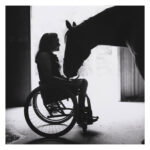 Community Mobility Method Selection in Individuals With iSCI: A Qualitative Analysis November 5, 2021
Community Mobility Method Selection in Individuals With iSCI: A Qualitative Analysis November 5, 2021 A Reorientation of Belief: Considerations for Increasing the Recruitment of Black Students Into Canadian Physiotherapy Programs November 5, 2021
A Reorientation of Belief: Considerations for Increasing the Recruitment of Black Students Into Canadian Physiotherapy Programs November 5, 2021 “Is the Assumption of the Autonomous Individual Holding Us Back in Vocational Rehabilitation?” November 5, 2021
“Is the Assumption of the Autonomous Individual Holding Us Back in Vocational Rehabilitation?” November 5, 2021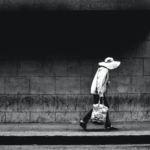 Piloting a Photography Program as Recreational Therapy for Adults With Spinal Cord Injury October 15, 2021
Piloting a Photography Program as Recreational Therapy for Adults With Spinal Cord Injury October 15, 2021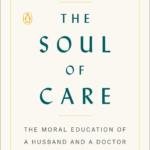 Defining What ‘Care’ Means: A Book Review of The Soul of Care: The Moral Education of a Husband and a Doctor October 15, 2021
Defining What ‘Care’ Means: A Book Review of The Soul of Care: The Moral Education of a Husband and a Doctor October 15, 2021 Healing Hands: A Street Medic in the Twin Cities Uprising November 17, 2020 - This unique reflective narrative presents a harrowing account of a clinician’s experience trying to heal the wounds of demonstrators during the Twin Cities uprising this past spring. Michael Rosentreter and Jáime Gonzalez vividly describe Rosentreter's time spent navigating flash grenades, tear gas, and other threats as he provides medical support to demonstrators. The experience helped him realize how valuable the role of a physical therapist in emergency settings truly is. Reflecting on the lessons learned during those nights, he realized, "However elevated the risk to me, nothing I experienced compares to the fear and danger people of color continually face." He states his commitment to the role of advocacy in physical therapy to recognize and dismantle systemic, institutional, and individual racism.
Healing Hands: A Street Medic in the Twin Cities Uprising November 17, 2020 - This unique reflective narrative presents a harrowing account of a clinician’s experience trying to heal the wounds of demonstrators during the Twin Cities uprising this past spring. Michael Rosentreter and Jáime Gonzalez vividly describe Rosentreter's time spent navigating flash grenades, tear gas, and other threats as he provides medical support to demonstrators. The experience helped him realize how valuable the role of a physical therapist in emergency settings truly is. Reflecting on the lessons learned during those nights, he realized, "However elevated the risk to me, nothing I experienced compares to the fear and danger people of color continually face." He states his commitment to the role of advocacy in physical therapy to recognize and dismantle systemic, institutional, and individual racism. A Challenge from the ‘Otherside of America’: Perspectives from a Black Clinician November 17, 2020 - In this stirring account, Oluremi Wanjiru Onifade and Sarah Caston present an honest and compelling look at the challenges within the physical therapy educational community for Black and brown people. Onifade paints a picture of her life growing up as a Kenyan/Nigerian queer-identifying Black American, and the obstacles she overcame on the path to her DPT. Her account ends where she challenges her colleague Caston: "There is a lack of representation of Black and brown people teaching in your PT program. Are you willing to do something?"
In response, Caston describes how that direct question changes her perception as an educator. She asks, "What does it look like for me, a white, heterosexual, cis-gender woman, to stand up to racism? And again, I ask, what does it look like for the profession of physical therapy to do the same?"
A Challenge from the ‘Otherside of America’: Perspectives from a Black Clinician November 17, 2020 - In this stirring account, Oluremi Wanjiru Onifade and Sarah Caston present an honest and compelling look at the challenges within the physical therapy educational community for Black and brown people. Onifade paints a picture of her life growing up as a Kenyan/Nigerian queer-identifying Black American, and the obstacles she overcame on the path to her DPT. Her account ends where she challenges her colleague Caston: "There is a lack of representation of Black and brown people teaching in your PT program. Are you willing to do something?"
In response, Caston describes how that direct question changes her perception as an educator. She asks, "What does it look like for me, a white, heterosexual, cis-gender woman, to stand up to racism? And again, I ask, what does it look like for the profession of physical therapy to do the same?" A Letter to My Mother November 17, 2020 - An homage to a devoted Charge Nurse, "A Letter to My Mother" lovingly shows what makes a true hero in today’s healthcare system. Ezeoyibo Justin Otiwu’s mother works nights with her COVID-19 patients without complaint and returns home to serve as a caregiver. This letter is a call-to-action for a new perspective on our essential workers, and poignantly drives us to reckon with the question of “how will we advocate for much-needed change to help the system’s valiant fighters?”
A Letter to My Mother November 17, 2020 - An homage to a devoted Charge Nurse, "A Letter to My Mother" lovingly shows what makes a true hero in today’s healthcare system. Ezeoyibo Justin Otiwu’s mother works nights with her COVID-19 patients without complaint and returns home to serve as a caregiver. This letter is a call-to-action for a new perspective on our essential workers, and poignantly drives us to reckon with the question of “how will we advocate for much-needed change to help the system’s valiant fighters?” Black Lives Matter and Anti-Racism Resource Guide November 17, 2020 - In alignment with our ongoing series dedicated to addressing social change, we offer a list of humanities-based resources for the Black Lives Matter movement and social justice. The materials accessed through the links offered here address art, beauty, dance, ethics, health issues, humanities education, movies, music, writings, and the Black experience in academia and the workplace. Readers are invited to access it frequently to educate themselves, self-reflect, and either begin or add to their journey toward being consistently anti-racist.
Black Lives Matter and Anti-Racism Resource Guide November 17, 2020 - In alignment with our ongoing series dedicated to addressing social change, we offer a list of humanities-based resources for the Black Lives Matter movement and social justice. The materials accessed through the links offered here address art, beauty, dance, ethics, health issues, humanities education, movies, music, writings, and the Black experience in academia and the workplace. Readers are invited to access it frequently to educate themselves, self-reflect, and either begin or add to their journey toward being consistently anti-racist. COVID-19 Resources: Health, Humanities, and Pandemic Intersections November 17, 2020 - To help JHR readers—and clinicians dealing with the pandemic—find inspiration, intellectual stimulation, and even some entertainment during these days of crisis and necessary isolation, Jamie Fleshman, SPT has compiled an extensive list of thought-provoking resources. The materials accessed through the links offered here address ethics, disability, a wide range of the arts, education, and clinical information—all collated from a humanities perspective. Readers are invited to access it frequently for inspiration during the weeks ahead.
COVID-19 Resources: Health, Humanities, and Pandemic Intersections November 17, 2020 - To help JHR readers—and clinicians dealing with the pandemic—find inspiration, intellectual stimulation, and even some entertainment during these days of crisis and necessary isolation, Jamie Fleshman, SPT has compiled an extensive list of thought-provoking resources. The materials accessed through the links offered here address ethics, disability, a wide range of the arts, education, and clinical information—all collated from a humanities perspective. Readers are invited to access it frequently for inspiration during the weeks ahead. Why Was I So Afraid? November 17, 2020 - In this thoughtful piece, Dr. Regina Kaufman tells of an encounter with a man in a checkout line who remembered that she was his physical therapist more than 30 years ago. Describing the man’s “relatively cool” demeanor, she expresses her fear that perhaps his memory of his treatment was not a completely positive one. She tries to recall the level of care she was able to provide as a novice, and notes that wisdom can only truly develop over time.
Why Was I So Afraid? November 17, 2020 - In this thoughtful piece, Dr. Regina Kaufman tells of an encounter with a man in a checkout line who remembered that she was his physical therapist more than 30 years ago. Describing the man’s “relatively cool” demeanor, she expresses her fear that perhaps his memory of his treatment was not a completely positive one. She tries to recall the level of care she was able to provide as a novice, and notes that wisdom can only truly develop over time. Vulnerability in Sports and Orthopedic Medicine November 17, 2020 - In her narrative reflection, Kate Mihevc Edwards presents her honest self-portrait as an avid runner whose life -- and very identity -- were altered by injury. But experiencing the vulnerability of losing her very sense of self proved to be a gift over time, she reports. "The work I put in to help me survive and cope made me a better clinician," she states. She shows how her loss helped her to develop a deeper understanding of the importance of empathy in healthcare.
Vulnerability in Sports and Orthopedic Medicine November 17, 2020 - In her narrative reflection, Kate Mihevc Edwards presents her honest self-portrait as an avid runner whose life -- and very identity -- were altered by injury. But experiencing the vulnerability of losing her very sense of self proved to be a gift over time, she reports. "The work I put in to help me survive and cope made me a better clinician," she states. She shows how her loss helped her to develop a deeper understanding of the importance of empathy in healthcare. My Father’s Journey: A Reading and Interview with Susan S. Deusinger, PT, PhD, FAPTA November 17, 2020 - In a poignant personal account, Susan Deusinger details her father's final months and his ultimate decision to take charge of his own death process. Although his passing left a void in her life, she notes that he also gave her "the privilege of honoring his beliefs and supporting his choices -- something we don't always have the opportunity to do as clinicians." A video interview accompanies this piece, in Deusinger's own words.
My Father’s Journey: A Reading and Interview with Susan S. Deusinger, PT, PhD, FAPTA November 17, 2020 - In a poignant personal account, Susan Deusinger details her father's final months and his ultimate decision to take charge of his own death process. Although his passing left a void in her life, she notes that he also gave her "the privilege of honoring his beliefs and supporting his choices -- something we don't always have the opportunity to do as clinicians." A video interview accompanies this piece, in Deusinger's own words. Beyond Words November 17, 2020 - In her essay, “Beyond Words,” Amanda Kaufman, PT, DPT illustrates how providing a space for her patient to tell her full story, during one of her darkest moments, and listening carefully, established the trust that allowed their healing work together to begin.
Beyond Words November 17, 2020 - In her essay, “Beyond Words,” Amanda Kaufman, PT, DPT illustrates how providing a space for her patient to tell her full story, during one of her darkest moments, and listening carefully, established the trust that allowed their healing work together to begin. CHEP-JHR Student Essay Contest: COVID-19 and Black Lives Matter November 17, 2020 - 2020 is defined by crises and uncertainties related to the COVID-19 pandemic and racial tensions. These impact the moral, social, political and economic foundations of our world, nation, and the profession of physical therapy. Navigating one’s professional identity and formation during this time is undoubtedly challenging; you may have had unexpected, yet impactful interactions as […]
CHEP-JHR Student Essay Contest: COVID-19 and Black Lives Matter November 17, 2020 - 2020 is defined by crises and uncertainties related to the COVID-19 pandemic and racial tensions. These impact the moral, social, political and economic foundations of our world, nation, and the profession of physical therapy. Navigating one’s professional identity and formation during this time is undoubtedly challenging; you may have had unexpected, yet impactful interactions as […] Pride, Prejudice, and Professionalism November 17, 2020 - Grace White, PT, DPT, relates in her essay, "Pride, Prejudice, and Professionalism," how she used patience, insight, and a clever strategy to overcome her patient's sexist bias against her and deliver his treatment.
Pride, Prejudice, and Professionalism November 17, 2020 - Grace White, PT, DPT, relates in her essay, "Pride, Prejudice, and Professionalism," how she used patience, insight, and a clever strategy to overcome her patient's sexist bias against her and deliver his treatment. The Science of Successful Learning: Applications to Physical Therapy Education November 17, 2020 - Co-author of the book Make it Stick: The Science of Successful Learning, Mark McDaniel offers his insights into the importance of questioning the “erroneous intuitions and common practices” within contemporary education. The book highlights the faulty ways people often go about learning, and explains the research supporting how learning and memory actually work and can be optimized. In applying these concepts to physical therapy education, Leda McDaniel, Mark McDaniel’s daughter, presents three key learning techniques from Make It Stick. Having successfully employed these techniques over the years, Leda notes how they can help students “overcome challenges in acquiring the foundational knowledge and skills needed for physical therapy practice.
The Science of Successful Learning: Applications to Physical Therapy Education November 17, 2020 - Co-author of the book Make it Stick: The Science of Successful Learning, Mark McDaniel offers his insights into the importance of questioning the “erroneous intuitions and common practices” within contemporary education. The book highlights the faulty ways people often go about learning, and explains the research supporting how learning and memory actually work and can be optimized. In applying these concepts to physical therapy education, Leda McDaniel, Mark McDaniel’s daughter, presents three key learning techniques from Make It Stick. Having successfully employed these techniques over the years, Leda notes how they can help students “overcome challenges in acquiring the foundational knowledge and skills needed for physical therapy practice. Learning Sciences in Curricula: Making Excellence in Physical Therapist Education Stick November 17, 2020 - This companion piece to the McDaniels article builds on their arguments for improved learning and applies them to physical therapy education. Steven Ambler advocates for the integration of Learning Sciences in physical therapy curricula. “Curricula that position the student, faculty, and profession as learner, and consider the plurality of learning theories, can help us all reach a deeper sense of what it means to be a physical therapist serving society,” he notes.
Learning Sciences in Curricula: Making Excellence in Physical Therapist Education Stick November 17, 2020 - This companion piece to the McDaniels article builds on their arguments for improved learning and applies them to physical therapy education. Steven Ambler advocates for the integration of Learning Sciences in physical therapy curricula. “Curricula that position the student, faculty, and profession as learner, and consider the plurality of learning theories, can help us all reach a deeper sense of what it means to be a physical therapist serving society,” he notes. Social Context and Ambivalence in Medicine: A Book Review of “Doctors at War: Life and Death in a Field Hospital” November 17, 2020 - In their insightful review of Doctors at War, Sean Halpin and Mariano Dossou Kpanou highlight the importance of the book's account of how a medical team operated on the front lines of war in Afghanistan in 2011. "Few studies examine how teams work together in extreme and challenging environments," they note. But this short and intense book "provides a unique glimpse into how these teams function in real time." Reading it may help prepare healthcare professionals "for unprecedented situations, such as the COVID-19 health crisis of 2020," they conclude.
Social Context and Ambivalence in Medicine: A Book Review of “Doctors at War: Life and Death in a Field Hospital” November 17, 2020 - In their insightful review of Doctors at War, Sean Halpin and Mariano Dossou Kpanou highlight the importance of the book's account of how a medical team operated on the front lines of war in Afghanistan in 2011. "Few studies examine how teams work together in extreme and challenging environments," they note. But this short and intense book "provides a unique glimpse into how these teams function in real time." Reading it may help prepare healthcare professionals "for unprecedented situations, such as the COVID-19 health crisis of 2020," they conclude. Book Review of Jim Linnell’s “Take It Lying Down: Finding My Feet After a Spinal Cord Injury” November 17, 2020 - Jamie Fleshman reviews Jim Linnell's book, "Take It Lying Down: Finding My Feet After a Spinal Cord Injury," Linnell's lively and moving account of his first two years of rehabilitation after a catastrophic accident. Fleshman also presents her interview with Linnell, including his advice for patients and clinicians during those first two critical years.
Book Review of Jim Linnell’s “Take It Lying Down: Finding My Feet After a Spinal Cord Injury” November 17, 2020 - Jamie Fleshman reviews Jim Linnell's book, "Take It Lying Down: Finding My Feet After a Spinal Cord Injury," Linnell's lively and moving account of his first two years of rehabilitation after a catastrophic accident. Fleshman also presents her interview with Linnell, including his advice for patients and clinicians during those first two critical years. Fall From November 17, 2020 - Julia Chevan leads us into her experience of a concussion through her moving and intimate poem, revealing the challenge of recognizing a new reality on the road to recovery.
Fall From November 17, 2020 - Julia Chevan leads us into her experience of a concussion through her moving and intimate poem, revealing the challenge of recognizing a new reality on the road to recovery. Constellation Syndrome November 17, 2020 - In this exquisite poem, Sophie L. Schott conveys the language that envelops a mother and her infant son, surrounded by complex medical equipment and imagining another narrative, a life not "seen through the telescope of sickness."
Constellation Syndrome November 17, 2020 - In this exquisite poem, Sophie L. Schott conveys the language that envelops a mother and her infant son, surrounded by complex medical equipment and imagining another narrative, a life not "seen through the telescope of sickness." Communicating in the Silence: Mental Health and Cultural Considerations in the Deaf and Hard of Hearing Population November 17, 2020 - "Communicating in the Silence" focuses on the challenges that deaf and hard-of-hearing (DHH) patients can face when seeking mental healthcare. Marcela Almeida and Katherine Kosman detail the barriers to care of one DHH young man, whose "medical diagnosis and treatment path were substantially changed by a more careful assessment that considered the unique aspects of the DHH population." The authors' recommendations for the future include an argument for greater use of Certified Deaf Interpreters in healthcare.
Communicating in the Silence: Mental Health and Cultural Considerations in the Deaf and Hard of Hearing Population November 17, 2020 - "Communicating in the Silence" focuses on the challenges that deaf and hard-of-hearing (DHH) patients can face when seeking mental healthcare. Marcela Almeida and Katherine Kosman detail the barriers to care of one DHH young man, whose "medical diagnosis and treatment path were substantially changed by a more careful assessment that considered the unique aspects of the DHH population." The authors' recommendations for the future include an argument for greater use of Certified Deaf Interpreters in healthcare. How Art Embodies Story: An Exploration of Basquiat Through a Physically Integrated Dance Performance May 18, 2020 - Melissa McCune reports on a recent dance project of Full Radius Dance—a company that integrates disabled and non-disabled dancers—which interpreted the works of artist Jean-Michel Basquiat. As a child, Basquiat experienced a debilitating injury that greatly influenced his art. Encountering groundbreaking works such as these, McCune explains, can help clinicians look beyond basic anatomy to see the “layered nature” of pain and disability.
How Art Embodies Story: An Exploration of Basquiat Through a Physically Integrated Dance Performance May 18, 2020 - Melissa McCune reports on a recent dance project of Full Radius Dance—a company that integrates disabled and non-disabled dancers—which interpreted the works of artist Jean-Michel Basquiat. As a child, Basquiat experienced a debilitating injury that greatly influenced his art. Encountering groundbreaking works such as these, McCune explains, can help clinicians look beyond basic anatomy to see the “layered nature” of pain and disability. “What is saving you now?” May 8, 2020 - None of us could ever have imagined that we would be a part of one of the generations of history. But our challenge has arrived. In an inspirational message, JHR Editor-in-Chief Dr. Sarah Blanton examines what it means to navigate these uncertain times. She demonstrates how a humanities perspective can well be what saves us and makes us stronger. “I truly believe this cohort of clinicians, experiencing this pandemic, will emerge with exceptional levels of resiliency, compassion, cognitive flexibility, and critical thinking skills…,” she concludes. “Our world will be remarkable in ways we have yet to imagine.”
“What is saving you now?” May 8, 2020 - None of us could ever have imagined that we would be a part of one of the generations of history. But our challenge has arrived. In an inspirational message, JHR Editor-in-Chief Dr. Sarah Blanton examines what it means to navigate these uncertain times. She demonstrates how a humanities perspective can well be what saves us and makes us stronger. “I truly believe this cohort of clinicians, experiencing this pandemic, will emerge with exceptional levels of resiliency, compassion, cognitive flexibility, and critical thinking skills…,” she concludes. “Our world will be remarkable in ways we have yet to imagine.” Profiles in Professionalism With Carol M. Davis May 8, 2020 - In this personal and insightful interview, Dr. Carol M. Davis relates her process of becoming a physical therapist, noting that the road to professionalism involves a willingness to “mature into oneself.” Describing her experiences working with students entering the field of physical therapy, she illustrates why studying the humanities helps students move beyond viewing their work as merely an occupation. Her reflections steer us towards a deeper understanding of what it means to be an extraordinary professional.
Profiles in Professionalism With Carol M. Davis May 8, 2020 - In this personal and insightful interview, Dr. Carol M. Davis relates her process of becoming a physical therapist, noting that the road to professionalism involves a willingness to “mature into oneself.” Describing her experiences working with students entering the field of physical therapy, she illustrates why studying the humanities helps students move beyond viewing their work as merely an occupation. Her reflections steer us towards a deeper understanding of what it means to be an extraordinary professional. My Journey Using Art as Physical Therapy May 8, 2020 - Babs McDonald describes her journey toward recovery from an ischemic stroke through painting and sketching. Through numerous examples of her artwork, she details her experiences pushing through impairment to create images chronicling her life. Based on her success, she advocates for the use of fine art techniques to foster upper limb movement in stroke survivors. Creating her art, she says, has taught her that “there are no failures in my recovery, only new challenges.”
My Journey Using Art as Physical Therapy May 8, 2020 - Babs McDonald describes her journey toward recovery from an ischemic stroke through painting and sketching. Through numerous examples of her artwork, she details her experiences pushing through impairment to create images chronicling her life. Based on her success, she advocates for the use of fine art techniques to foster upper limb movement in stroke survivors. Creating her art, she says, has taught her that “there are no failures in my recovery, only new challenges.” Dynamic Autonomy in Chronic Pain Management: Frida Kahlo Illustrates May 8, 2020 - As today’s healthcare professionals struggle to address the challenges of chronic-pain management, Debra Gorman-Badar argues that current multidisciplinary programs are missing a crucial component: an updated conception of patient autonomy. She details how expressive therapies help patients integrate their chronic-pain experiences into their lives and promote healing self-knowledge—as Frida Kahlo did through her remarkable paintings.
Dynamic Autonomy in Chronic Pain Management: Frida Kahlo Illustrates May 8, 2020 - As today’s healthcare professionals struggle to address the challenges of chronic-pain management, Debra Gorman-Badar argues that current multidisciplinary programs are missing a crucial component: an updated conception of patient autonomy. She details how expressive therapies help patients integrate their chronic-pain experiences into their lives and promote healing self-knowledge—as Frida Kahlo did through her remarkable paintings. What’s at Stake With Biomusic? Ethical Reflections on an Emerging Technology May 7, 2020 - Biomusic, emerging technology that translates physiological signals into sound/musical output may offer utility as an assistive technology for people with autism. The authors explore a variety of perspectives in humanities and social sciences to reflect on the ethical issues at stake with the use of biomusic in rehabilitation.
What’s at Stake With Biomusic? Ethical Reflections on an Emerging Technology May 7, 2020 - Biomusic, emerging technology that translates physiological signals into sound/musical output may offer utility as an assistive technology for people with autism. The authors explore a variety of perspectives in humanities and social sciences to reflect on the ethical issues at stake with the use of biomusic in rehabilitation. Perspectives On ‘Person-Centeredness’ From Neurological Rehabilitation and Critical Theory: Toward a Critical Constellation May 7, 2020 - Jenni Aittokallio, PT, MH and Anna Ilona Rajala, PT, MA explore in-depth the concept of person-centeredness in healthcare and rehabilitation. As a part of their research, they interviewed recipients of neurological rehabilitation, to determine what in their treatment had been truly meaningful for them. The authors suggest that person-centeredness is best viewed as encompassing a complex constellation of factors and issues surrounding each unique patient.
Perspectives On ‘Person-Centeredness’ From Neurological Rehabilitation and Critical Theory: Toward a Critical Constellation May 7, 2020 - Jenni Aittokallio, PT, MH and Anna Ilona Rajala, PT, MA explore in-depth the concept of person-centeredness in healthcare and rehabilitation. As a part of their research, they interviewed recipients of neurological rehabilitation, to determine what in their treatment had been truly meaningful for them. The authors suggest that person-centeredness is best viewed as encompassing a complex constellation of factors and issues surrounding each unique patient. The Americans with Disabilities Act (ADA): Honoring 30 Years of Civil Rights Protections May 7, 2020 - July 26, 2020 will mark the 30th Anniversary of the Americans with Disabilities Act (ADA), which was signed into law by President George H.W. Bush in 1990. The ADA National Network, which provides information, guidance, and training on the Americans with Disabilities Act (ADA), is celebrating the act’s 30th anniversary with programs and events throughout the year and on its actual anniversary in July. Read this article to learn more about the ADA 2020 anniversary event and other resources.
The Americans with Disabilities Act (ADA): Honoring 30 Years of Civil Rights Protections May 7, 2020 - July 26, 2020 will mark the 30th Anniversary of the Americans with Disabilities Act (ADA), which was signed into law by President George H.W. Bush in 1990. The ADA National Network, which provides information, guidance, and training on the Americans with Disabilities Act (ADA), is celebrating the act’s 30th anniversary with programs and events throughout the year and on its actual anniversary in July. Read this article to learn more about the ADA 2020 anniversary event and other resources. Toward True Equity: A Call for Further Revisions to the ADA May 7, 2020 - In a timely and important editorial, Jamie Fleshman, SPT calls for new amendments to the Americans with Disabilities Act. She identifies a critical contributor to American disability: the continued inaccessibility of public spaces. Attention must be drawn, she argues, to an American infrastructure that has been constructed for “a certain set of abilities,” and is profoundly outdated.
Toward True Equity: A Call for Further Revisions to the ADA May 7, 2020 - In a timely and important editorial, Jamie Fleshman, SPT calls for new amendments to the Americans with Disabilities Act. She identifies a critical contributor to American disability: the continued inaccessibility of public spaces. Attention must be drawn, she argues, to an American infrastructure that has been constructed for “a certain set of abilities,” and is profoundly outdated. Searching Behind “No!” May 7, 2020 - Congratulations to Northwestern University Doctor of Physical Therapy Program graduate student Bethany Shieh, SPT, the winner of the annual physical therapy student essay contest co-sponsored by the ACAPT Consortium for the Humanities, Ethics, and Professionalism (CHEP) and JHR. In her essay, “Searching Behind 'No!'", Ms. Shieh illustrates how we can create space to understand the pain, suffering and frustration that accompany and influence patient care, if we are willing to enter and dwell in our patient’s life experience.
Searching Behind “No!” May 7, 2020 - Congratulations to Northwestern University Doctor of Physical Therapy Program graduate student Bethany Shieh, SPT, the winner of the annual physical therapy student essay contest co-sponsored by the ACAPT Consortium for the Humanities, Ethics, and Professionalism (CHEP) and JHR. In her essay, “Searching Behind 'No!'", Ms. Shieh illustrates how we can create space to understand the pain, suffering and frustration that accompany and influence patient care, if we are willing to enter and dwell in our patient’s life experience. COVID-19 Resources: Health, Humanities, and Pandemic Intersections May 7, 2020 - To help JHR readers—and clinicians dealing with the pandemic—find inspiration, intellectual stimulation, and even some entertainment during these days of crisis and necessary isolation, Jamie Fleshman, SPT has compiled an extensive list of thought-provoking resources. The materials accessed through the links offered here address ethics, disability, a wide range of the arts, education, and clinical information—all collated from a humanities perspective. Readers are invited to access it frequently for inspiration during the weeks ahead.
COVID-19 Resources: Health, Humanities, and Pandemic Intersections May 7, 2020 - To help JHR readers—and clinicians dealing with the pandemic—find inspiration, intellectual stimulation, and even some entertainment during these days of crisis and necessary isolation, Jamie Fleshman, SPT has compiled an extensive list of thought-provoking resources. The materials accessed through the links offered here address ethics, disability, a wide range of the arts, education, and clinical information—all collated from a humanities perspective. Readers are invited to access it frequently for inspiration during the weeks ahead. Call for Papers May 7, 2020 - If you are interested in submitting your work to JHR, please review our Submission Guidelines. If you are considering being a reviewer, please contact Dr. Sarah Blanton: follow the Contact link, indicate the content area you are interested in reviewing, and attach your CV.
Call for Papers May 7, 2020 - If you are interested in submitting your work to JHR, please review our Submission Guidelines. If you are considering being a reviewer, please contact Dr. Sarah Blanton: follow the Contact link, indicate the content area you are interested in reviewing, and attach your CV. Reviving and Reflecting on “Portrait of Spirit: One Story at a Time” November 14, 2019 - Both a book and an exhibit, Portrait of Spirit: One Story at a Time by Billy Howard and Maggie Holtzberg offers new perspectives while challenging the way we view the lived disability experience. Using stunning photographs and beautifully written narratives from Portrait of Spirit, this piece serves as an ode to the groundbreaking stories that started it all while advocating for continued societal change for people living with disabilities.
Reviving and Reflecting on “Portrait of Spirit: One Story at a Time” November 14, 2019 - Both a book and an exhibit, Portrait of Spirit: One Story at a Time by Billy Howard and Maggie Holtzberg offers new perspectives while challenging the way we view the lived disability experience. Using stunning photographs and beautifully written narratives from Portrait of Spirit, this piece serves as an ode to the groundbreaking stories that started it all while advocating for continued societal change for people living with disabilities.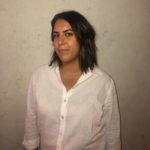 Critical Disability Studies With Rehabilitation: Re-thinking the human in rehabilitation research and practice November 14, 2019 - In this Perspective, Donya Mosleh, PhD argues for a new mode of scholarly practice that recognizes and addresses tensions between two fields that seemingly occupy opposite ends of a continuum. In order to promote a more productive engagement, critical disability studies with rehabilitation sciences unsettles knowledge relations that position these two fields as oppositional and incompatible.
Critical Disability Studies With Rehabilitation: Re-thinking the human in rehabilitation research and practice November 14, 2019 - In this Perspective, Donya Mosleh, PhD argues for a new mode of scholarly practice that recognizes and addresses tensions between two fields that seemingly occupy opposite ends of a continuum. In order to promote a more productive engagement, critical disability studies with rehabilitation sciences unsettles knowledge relations that position these two fields as oppositional and incompatible. Finding Help: Exploring the accounts of persons with disabilities in Western Zambia regarding strategies to improve their situation November 14, 2019 - The main focus of rehabilitation is to provide help to those who need it. But does the Western definition of “help” always apply in other regions? In “Finding Help: Exploring the Accounts of Persons With Disabilities in Western Zambia…,” Shaun R. Cleaver and colleagues present the concept of help in a completely new light, and offer suggestions for a more societally-based approach to healing.
Finding Help: Exploring the accounts of persons with disabilities in Western Zambia regarding strategies to improve their situation November 14, 2019 - The main focus of rehabilitation is to provide help to those who need it. But does the Western definition of “help” always apply in other regions? In “Finding Help: Exploring the Accounts of Persons With Disabilities in Western Zambia…,” Shaun R. Cleaver and colleagues present the concept of help in a completely new light, and offer suggestions for a more societally-based approach to healing. Out of Oxygen November 14, 2019 - In this sensitive reflection, DPT student Mercedes Aguirre describes an incident during her first clinical experience that taught her the importance of taking a deep breath—and speaking up on behalf of one’s patient.
Out of Oxygen November 14, 2019 - In this sensitive reflection, DPT student Mercedes Aguirre describes an incident during her first clinical experience that taught her the importance of taking a deep breath—and speaking up on behalf of one’s patient. Beyond First Impressions November 14, 2019 - Jake Raecker, DPT student, recalls a patient he encountered during his first clinical rotation who gave him quite a shock—but, with care and attention, taught him a valuable lesson about looking beyond first impressions.
Beyond First Impressions November 14, 2019 - Jake Raecker, DPT student, recalls a patient he encountered during his first clinical rotation who gave him quite a shock—but, with care and attention, taught him a valuable lesson about looking beyond first impressions. “The Best is the Enemy of the Good” November 14, 2019 - The healthcare professions often attract talented, committed perfectionists. But what can practitioners do when that perfectionism negatively affects rehabilitation? In “The Best is the Enemy of the Good,” David Gillette describes how his PT residency experience, and the thoughtful guidance of his mentors, helped him confront the negative aspects of his perfectionism and turn his thoughts toward the good.
“The Best is the Enemy of the Good” November 14, 2019 - The healthcare professions often attract talented, committed perfectionists. But what can practitioners do when that perfectionism negatively affects rehabilitation? In “The Best is the Enemy of the Good,” David Gillette describes how his PT residency experience, and the thoughtful guidance of his mentors, helped him confront the negative aspects of his perfectionism and turn his thoughts toward the good. Human Anatomical Gifts and Informed Consent: Three Perspectives November 14, 2019 - The United States abides by the Revised Uniform Anatomical Gift Act to regulate bodies donated to science; prior consent must be given. When DPT students at Georgia State University had the opportunity to attend an anatomic exhibition displaying preserved human specimens from another country, many ethical questions arose. In "Human Anatomical Gifts," three writers offer their perspectives, developed during the discussions that ensued, on the ethics of anatomic study—and exhibition.
Human Anatomical Gifts and Informed Consent: Three Perspectives November 14, 2019 - The United States abides by the Revised Uniform Anatomical Gift Act to regulate bodies donated to science; prior consent must be given. When DPT students at Georgia State University had the opportunity to attend an anatomic exhibition displaying preserved human specimens from another country, many ethical questions arose. In "Human Anatomical Gifts," three writers offer their perspectives, developed during the discussions that ensued, on the ethics of anatomic study—and exhibition. Resources November 14, 2019 - Keenan Whitesides and Dorottya B. Kacsoh will compile the Resources section for the Fall 2019 Issue.
Resources November 14, 2019 - Keenan Whitesides and Dorottya B. Kacsoh will compile the Resources section for the Fall 2019 Issue. Special Call for Submissions November 14, 2019 - The Historical Perspectives in Art Section is open to scholars and clinicians who are interested in researching art history as it broadly relates to rehabilitation medicine. We hope that you will reflect on your experiences in the humanities of rehabilitation and consider submitting a piece to our journal.
Special Call for Submissions November 14, 2019 - The Historical Perspectives in Art Section is open to scholars and clinicians who are interested in researching art history as it broadly relates to rehabilitation medicine. We hope that you will reflect on your experiences in the humanities of rehabilitation and consider submitting a piece to our journal. Exploring How Racism Structures Canadian Physical Therapy Programs: Counter-Stories From Racialized Students November 14, 2019 - The authors of this study conducted in-depth interviews with racialized students or recent graduates of Master’s-level physical therapy programs in Canada. The students described their experiences of white culture, and how well-meaning fellow students simply weren’t aware of the institutionalized racism around them. In compelling quotes, the students detail their feelings of frustration and resignation based on repeated exposure to race-related stereotypes.
Exploring How Racism Structures Canadian Physical Therapy Programs: Counter-Stories From Racialized Students November 14, 2019 - The authors of this study conducted in-depth interviews with racialized students or recent graduates of Master’s-level physical therapy programs in Canada. The students described their experiences of white culture, and how well-meaning fellow students simply weren’t aware of the institutionalized racism around them. In compelling quotes, the students detail their feelings of frustration and resignation based on repeated exposure to race-related stereotypes. Exploring Excellence: Author Reflections on Educating Physical Therapists November 14, 2019 - In this issue’s Book Review, the authors of Educating Physical Therapists describe their “10-year journey” of discovery that produced the first definitive report on the state of American PT education in a half-century. They highlight aspects of their findings of particular interest to readers of JHR—for example, their recommendations for “integration of the humanities across the curriculum.”
Exploring Excellence: Author Reflections on Educating Physical Therapists November 14, 2019 - In this issue’s Book Review, the authors of Educating Physical Therapists describe their “10-year journey” of discovery that produced the first definitive report on the state of American PT education in a half-century. They highlight aspects of their findings of particular interest to readers of JHR—for example, their recommendations for “integration of the humanities across the curriculum.” Profiles in Professionalism with Nancy Kirsch November 14, 2019 - In our Fall 2019 installment of JHR’s “Profiles in Professionalism” series, we sit down with Dr. Nancy R. Kirsch—a thinker whose compassionate, prolific scholarship is recognized throughout the field of rehabilitation. In this interview, Dr. Kirsch explores how physical therapy has evolved, and the critical role the humanities play in developing caring and compassionate professionals.
Profiles in Professionalism with Nancy Kirsch November 14, 2019 - In our Fall 2019 installment of JHR’s “Profiles in Professionalism” series, we sit down with Dr. Nancy R. Kirsch—a thinker whose compassionate, prolific scholarship is recognized throughout the field of rehabilitation. In this interview, Dr. Kirsch explores how physical therapy has evolved, and the critical role the humanities play in developing caring and compassionate professionals.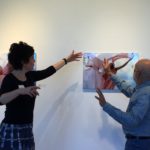 Agency Restored, Dignity Preserved: Lessons Learned as an Art Historian About Enhancing Quality of Life for People With Dementia November 14, 2019 - “What started as a narrowly-focused mission to welcome people with dementia … into our museum for the first time evolved into a much broader and more profound project: to reinvent what agency within the museum would look and feel like for visitors living with dementia,” author Susan Shifrin notes in this compelling piece. She details her journey from that experience to founding ARTZ Philadelphia, a program that invites people with dementia to serve as mentors to program participants.
Agency Restored, Dignity Preserved: Lessons Learned as an Art Historian About Enhancing Quality of Life for People With Dementia November 14, 2019 - “What started as a narrowly-focused mission to welcome people with dementia … into our museum for the first time evolved into a much broader and more profound project: to reinvent what agency within the museum would look and feel like for visitors living with dementia,” author Susan Shifrin notes in this compelling piece. She details her journey from that experience to founding ARTZ Philadelphia, a program that invites people with dementia to serve as mentors to program participants. Profiles in Professionalism With Beth Skidmore November 14, 2019 - This installment of JHR’s interviews with industry innovators focuses on clinician, researcher, and educator Beth Skidmore, an award-winning Occupational Therapist whose gifts inspire a wide range of students. Beginning with her early days, detailing why she chose her field, to describing her current leadership roles, Dr. Skidmore offers a compelling picture of how professionalism develops and professionals reach enlightenment. “I think now professionalism means to me…grace and humility,” she notes.
Profiles in Professionalism With Beth Skidmore November 14, 2019 - This installment of JHR’s interviews with industry innovators focuses on clinician, researcher, and educator Beth Skidmore, an award-winning Occupational Therapist whose gifts inspire a wide range of students. Beginning with her early days, detailing why she chose her field, to describing her current leadership roles, Dr. Skidmore offers a compelling picture of how professionalism develops and professionals reach enlightenment. “I think now professionalism means to me…grace and humility,” she notes. Poet in Profile – Ted Kooser November 14, 2019 - Interpreting poems written by renowned poet Ted Kooser in a Nebraskan winter in 1998, his friend Amy Haddad highlights the beauty of the human spirit when faced with life-threatening challenges. Kooser wrote the poems on his two-mile walks before dawn as he recovered from surgery, chemotherapy, and radiation for tongue and neck cancer in 1998. Compact and powerful, they show how one creative mind forged a bit of order in the “chaos” of recovery.
Poet in Profile – Ted Kooser November 14, 2019 - Interpreting poems written by renowned poet Ted Kooser in a Nebraskan winter in 1998, his friend Amy Haddad highlights the beauty of the human spirit when faced with life-threatening challenges. Kooser wrote the poems on his two-mile walks before dawn as he recovered from surgery, chemotherapy, and radiation for tongue and neck cancer in 1998. Compact and powerful, they show how one creative mind forged a bit of order in the “chaos” of recovery. Editorial: The Healing Power of Seeing—and Being Seen November 14, 2019 - Part of our job as clinicians is to recognize that while our knowledge and skills are the tools to facilitate the body’s recovery from illness, it is our shared humanness, our presence, that supports the healing power of the soul. How we dance along those lines—recognizing where our role is to fix or simply be present—is the beautiful, sometimes haunting part of the rehabilitation landscape that the humanities can help us navigate.
Editorial: The Healing Power of Seeing—and Being Seen November 14, 2019 - Part of our job as clinicians is to recognize that while our knowledge and skills are the tools to facilitate the body’s recovery from illness, it is our shared humanness, our presence, that supports the healing power of the soul. How we dance along those lines—recognizing where our role is to fix or simply be present—is the beautiful, sometimes haunting part of the rehabilitation landscape that the humanities can help us navigate. ‘Making Strange’: Exploring the Development of Students’ Capacity in Epistemic Reflexivity November 14, 2019 - Engaging in epistemic reflexivity, or the ability to question the ways in which we practice, and their association with organizational and social structures, is the key to gaining a clear perspective on the profession, according to these authors. How can students take a step back, and gain true insight into their professional world? This study employed a 7-step framework to introduce learners to the process of “making strange.”
‘Making Strange’: Exploring the Development of Students’ Capacity in Epistemic Reflexivity November 14, 2019 - Engaging in epistemic reflexivity, or the ability to question the ways in which we practice, and their association with organizational and social structures, is the key to gaining a clear perspective on the profession, according to these authors. How can students take a step back, and gain true insight into their professional world? This study employed a 7-step framework to introduce learners to the process of “making strange.” Gathering on the Wrong Side of the Road: Critical Race Scholarship Across the Health Humanities November 14, 2019 - In a compelling response to our article, "Exploring How Racism Structures Canadian Physical Therapy Programs," Dr. Bryan Mukandi offers an account of his critique of early drafts of the article, requested by the authors. He notes that his fear at the time was that the article “was an inadvertent reiteration of the idea that the inclusion of people of color in health disciplines is a matter of charity rather than justice.” Dr. Mukandi expresses the hope that more colleagues like these can gather with those “on the wrong side of the road” to foster dialogue and spur change.
Gathering on the Wrong Side of the Road: Critical Race Scholarship Across the Health Humanities November 14, 2019 - In a compelling response to our article, "Exploring How Racism Structures Canadian Physical Therapy Programs," Dr. Bryan Mukandi offers an account of his critique of early drafts of the article, requested by the authors. He notes that his fear at the time was that the article “was an inadvertent reiteration of the idea that the inclusion of people of color in health disciplines is a matter of charity rather than justice.” Dr. Mukandi expresses the hope that more colleagues like these can gather with those “on the wrong side of the road” to foster dialogue and spur change. Harnessing the Power of Language for Healing November 14, 2019 - Spurred by her recollection of Amanda Gorman’s beautiful poem spoken on the steps of the Capitol building just days after a violent attack, Sarah Blanton, in her Spring 2021 Editorial, reflects on the power of words to harm or to heal. She encourages readers to consider the daily impact of their own words on those around them. She details how researchers, educators, and clinicians can more deeply engage with the humanities in order to better hear their own stories—thereby strengthening their individual power for healing with the spoken word.
Harnessing the Power of Language for Healing November 14, 2019 - Spurred by her recollection of Amanda Gorman’s beautiful poem spoken on the steps of the Capitol building just days after a violent attack, Sarah Blanton, in her Spring 2021 Editorial, reflects on the power of words to harm or to heal. She encourages readers to consider the daily impact of their own words on those around them. She details how researchers, educators, and clinicians can more deeply engage with the humanities in order to better hear their own stories—thereby strengthening their individual power for healing with the spoken word. Reading Eucalyptus: Reflections on Narrative Education in Medicine and Health Sciences November 14, 2019 - Healthcare educators may find inspiration from a seemingly infinite number of resources. In “Reading Eucalyptus,” Christy D. DiFrances describes how an encounter with a work of magical fiction years ago still provides her with “keen observations that are surprisingly relevant to education in academic medicine and health sciences.”
Reading Eucalyptus: Reflections on Narrative Education in Medicine and Health Sciences November 14, 2019 - Healthcare educators may find inspiration from a seemingly infinite number of resources. In “Reading Eucalyptus,” Christy D. DiFrances describes how an encounter with a work of magical fiction years ago still provides her with “keen observations that are surprisingly relevant to education in academic medicine and health sciences.” The Fragility of Life: Through Service I Live November 13, 2019 - In an honest case study from his residency year, Corey Nolte shows how “my narrow-minded understanding of the resiliency of the will to live was expanded.” As his terminally-ill cancer patient became more frail and less willing to accept treatment, they shared a tender, intimate moment of prayer. Nolte offered comfort through his patient’s final days. By carefully supporting end-of-life wishes, he notes, “we can help to unburden patient angst and give direction to our own moral compass.”
The Fragility of Life: Through Service I Live November 13, 2019 - In an honest case study from his residency year, Corey Nolte shows how “my narrow-minded understanding of the resiliency of the will to live was expanded.” As his terminally-ill cancer patient became more frail and less willing to accept treatment, they shared a tender, intimate moment of prayer. Nolte offered comfort through his patient’s final days. By carefully supporting end-of-life wishes, he notes, “we can help to unburden patient angst and give direction to our own moral compass.” Climbing Back into the World November 13, 2019 - In her stark and direct poem, Kirsten Woodend details the “multitude of indignities” that someone “in the process of body repair” can suffer. She notes how a person in recovery becomes a child in others’ eyes, “incapable of coping mentally or physically.” The poem asks why these extra psychological burdens must be added to the healing process.
Climbing Back into the World November 13, 2019 - In her stark and direct poem, Kirsten Woodend details the “multitude of indignities” that someone “in the process of body repair” can suffer. She notes how a person in recovery becomes a child in others’ eyes, “incapable of coping mentally or physically.” The poem asks why these extra psychological burdens must be added to the healing process.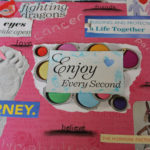 Fostering Hope and Coping While Living With Lymphedema: A Visual Narrative for Engaging Cancer Survivors and Caregivers November 13, 2019 - With compelling quotes from participants, and links to their groundbreaking video, these authors relate the fundamental impact of a series of workshops they developed to help cancer survivors live with lymphedema. The lymphedema video is “an accessible tool for patients, caregivers, students, and healthcare professionals,” they note. “We echo the participants’ hope that it will encourage dialogue between health professionals and patients.”
Fostering Hope and Coping While Living With Lymphedema: A Visual Narrative for Engaging Cancer Survivors and Caregivers November 13, 2019 - With compelling quotes from participants, and links to their groundbreaking video, these authors relate the fundamental impact of a series of workshops they developed to help cancer survivors live with lymphedema. The lymphedema video is “an accessible tool for patients, caregivers, students, and healthcare professionals,” they note. “We echo the participants’ hope that it will encourage dialogue between health professionals and patients.” Patient Care During a Pandemic: The Significance of Humanism in Healthcare November 13, 2019 - How does a student cope with isolation during a forced four-month break from clinical rotations? Olivia Wolfe enrolled in an online course, Humanism in Health and Healthcare. Its impact inspired her to use her “voice and privilege to uplift and support essential causes fighting the twin pandemics of COVID-19 and racism.” She details her journey to a new commitment to humanism at home and in the clinic.
Patient Care During a Pandemic: The Significance of Humanism in Healthcare November 13, 2019 - How does a student cope with isolation during a forced four-month break from clinical rotations? Olivia Wolfe enrolled in an online course, Humanism in Health and Healthcare. Its impact inspired her to use her “voice and privilege to uplift and support essential causes fighting the twin pandemics of COVID-19 and racism.” She details her journey to a new commitment to humanism at home and in the clinic. Art Informing Interdisciplinary Care for a Veteran Recovering from Traumatic Brain Injury: A Case Study November 13, 2019 - This poignant case study, featuring impressive art created by a military veteran with traumatic brain injury and comorbidities, expresses the power of Art Therapy to heal profound physical and psychological wounds. “The veteran’s art increased his self-awareness while informing the clinical team of his ongoing experience,” Gayla Elliott notes. His art and his words make a compelling case for adding art to the rehabilitation process.
Art Informing Interdisciplinary Care for a Veteran Recovering from Traumatic Brain Injury: A Case Study November 13, 2019 - This poignant case study, featuring impressive art created by a military veteran with traumatic brain injury and comorbidities, expresses the power of Art Therapy to heal profound physical and psychological wounds. “The veteran’s art increased his self-awareness while informing the clinical team of his ongoing experience,” Gayla Elliott notes. His art and his words make a compelling case for adding art to the rehabilitation process. Empathy November 13, 2019 - In this artfully crafted poem, Jamie Fleshman makes a strong distinction between the shallow demands of sympathy and the far deeper mutual understanding that evolves from genuine empathy. She speaks authentically from her own experience, giving moving, useful instruction to those who want to come alongside.
Empathy November 13, 2019 - In this artfully crafted poem, Jamie Fleshman makes a strong distinction between the shallow demands of sympathy and the far deeper mutual understanding that evolves from genuine empathy. She speaks authentically from her own experience, giving moving, useful instruction to those who want to come alongside. Spring 2021 Resources November 13, 2019 - In this issue’s Resources page, Eric Holshouser offers a rich list of ways to cope with the isolation of the COVID landscape by spurring creative thought. Readers may find respite in The Art of Happiness by the Dalai Lama, or view an online webinar on Flourishing in an Era of Uncertainty. Holshouser also includes links to crucial current information—such as the groundbreaking, and important, video The Social Dilemma.
Spring 2021 Resources November 13, 2019 - In this issue’s Resources page, Eric Holshouser offers a rich list of ways to cope with the isolation of the COVID landscape by spurring creative thought. Readers may find respite in The Art of Happiness by the Dalai Lama, or view an online webinar on Flourishing in an Era of Uncertainty. Holshouser also includes links to crucial current information—such as the groundbreaking, and important, video The Social Dilemma. A Journey Toward Mindfulness November 13, 2019 - In "A Journey Toward Mindfulness," Kelsey Robinson, SPT describes the steps she took to turn the effects of a crippling racist remark into a positive force for self-discovery. Rather than holding in her pain and self-doubt, she accepted an invitation to tell her story to young people. “In the process, I found my voice,” she notes. She encourages others to do the same. “Someone needs you,” she states. “The trials you face today will become your strength tomorrow as a clinician.”
A Journey Toward Mindfulness November 13, 2019 - In "A Journey Toward Mindfulness," Kelsey Robinson, SPT describes the steps she took to turn the effects of a crippling racist remark into a positive force for self-discovery. Rather than holding in her pain and self-doubt, she accepted an invitation to tell her story to young people. “In the process, I found my voice,” she notes. She encourages others to do the same. “Someone needs you,” she states. “The trials you face today will become your strength tomorrow as a clinician.” The Gift of a Quieted Breath November 13, 2019 - Hannah Vaca evokes an important learning moment in this moving and heartfelt poem, as she reflects on the gift a donor's body provides and how a donor's sacrifice impacts the lives of developing health professionals.
The Gift of a Quieted Breath November 13, 2019 - Hannah Vaca evokes an important learning moment in this moving and heartfelt poem, as she reflects on the gift a donor's body provides and how a donor's sacrifice impacts the lives of developing health professionals. Historical Perspectives in Art: The Value of Art History in a Pandemic: Teaching as a Healing Force November 12, 2019 - In this powerful reflection, Siobhan Conaty shows how art history as a health humanities discipline can provide two uniquely different (yet equally important) teaching methods for students reckoning with a health crisis. One negative (a critical reading of graphic pandemic images) and one positive (looking to art as a powerful healing instrument), each serves an important purpose. Conaty details the positive approach she recently chose for her students -- emphasizing art as a healing force.
Historical Perspectives in Art: The Value of Art History in a Pandemic: Teaching as a Healing Force November 12, 2019 - In this powerful reflection, Siobhan Conaty shows how art history as a health humanities discipline can provide two uniquely different (yet equally important) teaching methods for students reckoning with a health crisis. One negative (a critical reading of graphic pandemic images) and one positive (looking to art as a powerful healing instrument), each serves an important purpose. Conaty details the positive approach she recently chose for her students -- emphasizing art as a healing force. The Persisting Values of Humanism, Integrity, and Truth-Seeking November 12, 2019 - Presenting the Fall 2020 issue of JHR to readers, Editor-in-Chief Sarah Blanton looks deeply into the role of humanities in healing and inspiring a nation facing challenges both physical and societal. Remembering the last words of Representative John Lewis urging Americans to “stand up, speak up and speak out,” Blanton pledges the commitment of JHR to presenting narratives, both personal and collective, that encourage fundamental healing. She introduces with this issue a themed series dedicated to topics of social justice as well as the experiences of people caught in the COVID-19 pandemic. “We believe, in moments like these, that the next right step begins with seeing each other more clearly and using the humanities as a conduit for exploring the lived experience of others.”
The Persisting Values of Humanism, Integrity, and Truth-Seeking November 12, 2019 - Presenting the Fall 2020 issue of JHR to readers, Editor-in-Chief Sarah Blanton looks deeply into the role of humanities in healing and inspiring a nation facing challenges both physical and societal. Remembering the last words of Representative John Lewis urging Americans to “stand up, speak up and speak out,” Blanton pledges the commitment of JHR to presenting narratives, both personal and collective, that encourage fundamental healing. She introduces with this issue a themed series dedicated to topics of social justice as well as the experiences of people caught in the COVID-19 pandemic. “We believe, in moments like these, that the next right step begins with seeing each other more clearly and using the humanities as a conduit for exploring the lived experience of others.”  Reflections on Early Attempts to Provide Pain Neuroscience Education in Conjunction With Biopsychosocial Care From the Patient and Interprofessional Team Perspectives April 15, 2019
Reflections on Early Attempts to Provide Pain Neuroscience Education in Conjunction With Biopsychosocial Care From the Patient and Interprofessional Team Perspectives April 15, 2019 Guest Editorial | Infusing Rehabilitation with Critical Research and Scholarship: A Call to Action April 15, 2019
Guest Editorial | Infusing Rehabilitation with Critical Research and Scholarship: A Call to Action April 15, 2019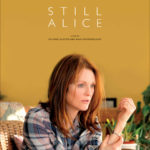 Alzheimer’s Disease and Emotions: An Interpretive Phenomenological Analysis of the Film “Still Alice” April 15, 2019
Alzheimer’s Disease and Emotions: An Interpretive Phenomenological Analysis of the Film “Still Alice” April 15, 2019 Re-Imagining Humanism in Rehabilitation November 8, 2018 - What does it mean to be a professional? What is professionalism? How do we help to develop professional formation in students and clinicians? How do we develop ethically-engaged clinicians? Is professionalism part of best practice, and why?
Re-Imagining Humanism in Rehabilitation November 8, 2018 - What does it mean to be a professional? What is professionalism? How do we help to develop professional formation in students and clinicians? How do we develop ethically-engaged clinicians? Is professionalism part of best practice, and why? Pitfalls and Pearls of Persistent Pain November 8, 2018 - As the subject of chronic pain and its treatment has become crucially important in today’s healthcare and rehabilitation environments, we offer the accounts of three physical therapists who have encountered patients with persistent pain and learned valuable lessons in the process. The article shows how a humanistic approach—involving factors such as trust, shared decision-making, and empathy—can add a psychosocial dimension to the treatment of chronic pain, and work to achieve more lasting results.
Pitfalls and Pearls of Persistent Pain November 8, 2018 - As the subject of chronic pain and its treatment has become crucially important in today’s healthcare and rehabilitation environments, we offer the accounts of three physical therapists who have encountered patients with persistent pain and learned valuable lessons in the process. The article shows how a humanistic approach—involving factors such as trust, shared decision-making, and empathy—can add a psychosocial dimension to the treatment of chronic pain, and work to achieve more lasting results. Use of a Patient-Educator to Train Doctor of Physical Therapy Students Regarding Sexuality and Disability November 8, 2018 - In this thought-provoking article, Cara Felter, PT, DPT, MPH describes a paired approach between a faculty member and an individual with a spinal cord injury to teach physical therapy students about sexuality and disability, and offer guidance for speaking with patients about this sensitive subject.
Use of a Patient-Educator to Train Doctor of Physical Therapy Students Regarding Sexuality and Disability November 8, 2018 - In this thought-provoking article, Cara Felter, PT, DPT, MPH describes a paired approach between a faculty member and an individual with a spinal cord injury to teach physical therapy students about sexuality and disability, and offer guidance for speaking with patients about this sensitive subject. Call for Submissions: Journal of Humanities in Rehabilitation Physical Therapy Student Essay Contest November 8, 2018 - The Consortium for Humanities, Ethics and Professionalism (CHEP) of the American Council of Academic Physical Therapy (ACAPT) advocates for the importance of the humanities, ethics, and professionalism in physical therapy education practice because excellent clinical practice requires the ability to make meaningful connections with patients and to make decisions in unclear or vulnerable circumstances.
Call for Submissions: Journal of Humanities in Rehabilitation Physical Therapy Student Essay Contest November 8, 2018 - The Consortium for Humanities, Ethics and Professionalism (CHEP) of the American Council of Academic Physical Therapy (ACAPT) advocates for the importance of the humanities, ethics, and professionalism in physical therapy education practice because excellent clinical practice requires the ability to make meaningful connections with patients and to make decisions in unclear or vulnerable circumstances. Life Transformed Through Movement November 8, 2018 - A photograph, a memory of the sound of wind in the trees, of a chill in the air, invoke a personal reflection of a life focused on movement and care. In her delicate poem, Kathryn Zalewski, PT, PhD, MPA,uses Gregg Fuhrman, MPT, OCS, CFMT, CMTPT’s image to guide her description of life as a physical therapist, a mother, and a teacher — in whispers.
Life Transformed Through Movement November 8, 2018 - A photograph, a memory of the sound of wind in the trees, of a chill in the air, invoke a personal reflection of a life focused on movement and care. In her delicate poem, Kathryn Zalewski, PT, PhD, MPA,uses Gregg Fuhrman, MPT, OCS, CFMT, CMTPT’s image to guide her description of life as a physical therapist, a mother, and a teacher — in whispers.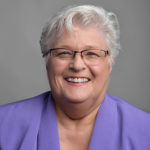 Profiles in Professionalism – Interview with Laura Lee (Dolly) Swisher, PT, PhD, MDiv, FNAP, FAPTA November 8, 2018
Profiles in Professionalism – Interview with Laura Lee (Dolly) Swisher, PT, PhD, MDiv, FNAP, FAPTA November 8, 2018 Eye Spy for Physical Therapy Graduate Education November 8, 2018 - Cindy B. Dodds, PT, PhD, PCS and colleagues describe how their successful pilot program took physical therapy students out of the university setting and into a local art museum for a unique experience of observation using visual thinking strategies.
Eye Spy for Physical Therapy Graduate Education November 8, 2018 - Cindy B. Dodds, PT, PhD, PCS and colleagues describe how their successful pilot program took physical therapy students out of the university setting and into a local art museum for a unique experience of observation using visual thinking strategies. Resources: Fall 2018 November 8, 2018 - Speechless: For two seasons, Speechless looks at the struggles and triumphs of an American family with a son with a disability. One of four kids, JJ DiMeo—played by Micah Fowler, who has cerebral palsy himself—is a teen growing up with a physical disability who uses a communication device to speak.
Resources: Fall 2018 November 8, 2018 - Speechless: For two seasons, Speechless looks at the struggles and triumphs of an American family with a son with a disability. One of four kids, JJ DiMeo—played by Micah Fowler, who has cerebral palsy himself—is a teen growing up with a physical disability who uses a communication device to speak. Three Voices at the Table November 8, 2018 - In a fascinating, creative account, Tania Riske, MS/CCC-SLP, and CeCelia Zorn, PhD, RN let the voices of a patient, his wife, and his speech/language pathologist describe the challenges, small triumphs, and human connections involved in the treatment of primary progressive aphasia—a rare neurological disease that causes the total loss of speech.
Three Voices at the Table November 8, 2018 - In a fascinating, creative account, Tania Riske, MS/CCC-SLP, and CeCelia Zorn, PhD, RN let the voices of a patient, his wife, and his speech/language pathologist describe the challenges, small triumphs, and human connections involved in the treatment of primary progressive aphasia—a rare neurological disease that causes the total loss of speech. Historical Perspectives in Art | Edgar Degas: Celebrating Beauty in Movement September 11, 2018 - Melissa McCune, SPT takes you into the world of Edgar Degas as he captures the art of physical movement. She shows us how, at a time when art focused on the face, the clothing, perhaps the hands, Degas chose to focus his paintings “on the body as a whole to reveal its objective beauty and intimate connection with the space around it.”
Historical Perspectives in Art | Edgar Degas: Celebrating Beauty in Movement September 11, 2018 - Melissa McCune, SPT takes you into the world of Edgar Degas as he captures the art of physical movement. She shows us how, at a time when art focused on the face, the clothing, perhaps the hands, Degas chose to focus his paintings “on the body as a whole to reveal its objective beauty and intimate connection with the space around it.”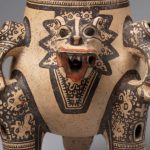 Empowered, Not Disabled: An Ancient Shaman Effigy Vessel at the Carlos Museum April 30, 2018 - In a sensitive interpretation of ancient artifacts, Rebecca R. Stone, PhD, explores how other cultures may assign an elevated status to those living with disabilities, seeing them not as afflicted but as gifted with special healing powers.
Empowered, Not Disabled: An Ancient Shaman Effigy Vessel at the Carlos Museum April 30, 2018 - In a sensitive interpretation of ancient artifacts, Rebecca R. Stone, PhD, explores how other cultures may assign an elevated status to those living with disabilities, seeing them not as afflicted but as gifted with special healing powers.  Author Reflection: Rehabilitation: A Post-Critical Approach April 30, 2018 - Barbara E. Gibson, PhD, Associate Professor at the University of Toronto, discusses her book: Rehabilitation: A Post-Critical Approach, a text for rehabilitation science students to engage with critical social theories, providing a framework to think through the application of these ideas to research and practice.
Author Reflection: Rehabilitation: A Post-Critical Approach April 30, 2018 - Barbara E. Gibson, PhD, Associate Professor at the University of Toronto, discusses her book: Rehabilitation: A Post-Critical Approach, a text for rehabilitation science students to engage with critical social theories, providing a framework to think through the application of these ideas to research and practice.  Mind Mapping: Using Visual Thinking to Improve Patient Care and Quality of Life April 30, 2018 - Phillip Kellogg, SPT, and Ali Nogi, PT, DPT, present an overview of the practice of Mind Mapping—a visual-thinking tool used for organizing information. Citing Dr. George Huba’s use of Mind Mapping to support his independence as he lives with dementia, the authors make the case for the technique’s effective application in healthcare and rehabilitation.
Mind Mapping: Using Visual Thinking to Improve Patient Care and Quality of Life April 30, 2018 - Phillip Kellogg, SPT, and Ali Nogi, PT, DPT, present an overview of the practice of Mind Mapping—a visual-thinking tool used for organizing information. Citing Dr. George Huba’s use of Mind Mapping to support his independence as he lives with dementia, the authors make the case for the technique’s effective application in healthcare and rehabilitation. Student Essay Contest Winner: Mrs. Z April 30, 2018 - Congratulations to Creighton Doctor of Physical Therapy Program graduate student, Hayley Rieger, the winner of the inaugural physical therapy essay contest, co-sponsored by the ACAPT Consortium for the Humanities, Ethics, and Professionalism (CHEP) and JHR! She reflects how her patient taught her that “helping someone reach their full potential means hearing the song in their heart and finding a way to sing it back.”
Student Essay Contest Winner: Mrs. Z April 30, 2018 - Congratulations to Creighton Doctor of Physical Therapy Program graduate student, Hayley Rieger, the winner of the inaugural physical therapy essay contest, co-sponsored by the ACAPT Consortium for the Humanities, Ethics, and Professionalism (CHEP) and JHR! She reflects how her patient taught her that “helping someone reach their full potential means hearing the song in their heart and finding a way to sing it back.” Bringing Therapy Home: Book Review of One Hundred Names for Love April 30, 2018 - Professor Julie Hengst, PhD, reviews One Hundred Names for Love: A Stroke, a Marriage, and the Language of Healing, by Diane Ackerman. The book chronicles how Ackerman responded to her husband’s aphasia by turning their home into an enriched rehabilitative environment that challenged his cognitive functions daily, and achieved inspiring results.
Bringing Therapy Home: Book Review of One Hundred Names for Love April 30, 2018 - Professor Julie Hengst, PhD, reviews One Hundred Names for Love: A Stroke, a Marriage, and the Language of Healing, by Diane Ackerman. The book chronicles how Ackerman responded to her husband’s aphasia by turning their home into an enriched rehabilitative environment that challenged his cognitive functions daily, and achieved inspiring results. Insights from the Margins of Thought and Experience April 30, 2018 - Welcome to the Spring 2018 Issue of the Journal of Humanities in Rehabilitation. We explore how agents of change are frequently those individuals or communities, creatively and courageously asking challenging questions and seeking new perspectives.
Insights from the Margins of Thought and Experience April 30, 2018 - Welcome to the Spring 2018 Issue of the Journal of Humanities in Rehabilitation. We explore how agents of change are frequently those individuals or communities, creatively and courageously asking challenging questions and seeking new perspectives. Introducing a New Section of JHR Dedicated to ‘Critical’ Rehabilitation Research and Scholarship April 30, 2018 - Jenny Setchell, PhD, BScPT and Barbara Gibson, PhD are co- editors of a new section in JHR dedicated to publishing research and scholarship that employ critical perspectives on rehabilitation. They seek submissions applying critical, post structural, or postmodern theories including original research, think pieces, and theoretical discussions of the philosophical basis of rehabilitation practices, education and/or research.
Introducing a New Section of JHR Dedicated to ‘Critical’ Rehabilitation Research and Scholarship April 30, 2018 - Jenny Setchell, PhD, BScPT and Barbara Gibson, PhD are co- editors of a new section in JHR dedicated to publishing research and scholarship that employ critical perspectives on rehabilitation. They seek submissions applying critical, post structural, or postmodern theories including original research, think pieces, and theoretical discussions of the philosophical basis of rehabilitation practices, education and/or research. See Me April 30, 2018 - Amanda LaLonde, PT, DPT, GCS shares an original poem that captures the feelings of frightened, defiant patients in an impersonal healthcare system. In her author commentary, she then presents a challenge to herself and her colleagues to return humility, humanity, and empathy to healthcare.
See Me April 30, 2018 - Amanda LaLonde, PT, DPT, GCS shares an original poem that captures the feelings of frightened, defiant patients in an impersonal healthcare system. In her author commentary, she then presents a challenge to herself and her colleagues to return humility, humanity, and empathy to healthcare. Piloting an Undergraduate Survey Course in Medical Humanities and Social Medicine: Lessons, Tradeoffs, and Institutional Context April 30, 2018 - Eileen P. Anderson-Fye, EdD, and colleagues report on the development of a pilot undergraduate survey course that offered an overview of disciplinary approaches to health across the humanities and social sciences—and provided rich rewards to participating students.
Piloting an Undergraduate Survey Course in Medical Humanities and Social Medicine: Lessons, Tradeoffs, and Institutional Context April 30, 2018 - Eileen P. Anderson-Fye, EdD, and colleagues report on the development of a pilot undergraduate survey course that offered an overview of disciplinary approaches to health across the humanities and social sciences—and provided rich rewards to participating students.  Neuromuscular Scoliosis (and Resolution) as a Lived Experience for an Adult With Tetraplegia April 30, 2018 - Jennifer Hastings, PT, PhD, NCS, and colleagues present a phenomenological study of the lived experience of an individual with tetraplegia who developed new-onset neuromuscular scoliosis, refused to accept the condition as inevitable, and worked with a seating specialist to regain control of his life.
Neuromuscular Scoliosis (and Resolution) as a Lived Experience for an Adult With Tetraplegia April 30, 2018 - Jennifer Hastings, PT, PhD, NCS, and colleagues present a phenomenological study of the lived experience of an individual with tetraplegia who developed new-onset neuromuscular scoliosis, refused to accept the condition as inevitable, and worked with a seating specialist to regain control of his life.  A Canvas, Some Paint—and a Famous Artist Has Changed the Game of Cardiac Rehab April 30, 2018 - Sarah Smith, SPT, and Kathy Lee Bishop, PT, DPT, report on Art with Heart, a creative program for patients recovering from cardiac surgery. The classes, initiated by artist Wayland Moore following his own triple-bypass surgery, address the healing of the minds and souls of recovering patients.
A Canvas, Some Paint—and a Famous Artist Has Changed the Game of Cardiac Rehab April 30, 2018 - Sarah Smith, SPT, and Kathy Lee Bishop, PT, DPT, report on Art with Heart, a creative program for patients recovering from cardiac surgery. The classes, initiated by artist Wayland Moore following his own triple-bypass surgery, address the healing of the minds and souls of recovering patients.  Healing from ‘Brokenness’: The Story of Corinne April 30, 2018 - In this tender account of his family’s fostering and later adoption of Corinne, a physically traumatized infant born with neonatal abstinence syndrome, Chad Jackson, PT, DPT, OCS, details how a healthcare provider’s empathy, empowerment, and connection form a crucial aspect of the healing process.
Healing from ‘Brokenness’: The Story of Corinne April 30, 2018 - In this tender account of his family’s fostering and later adoption of Corinne, a physically traumatized infant born with neonatal abstinence syndrome, Chad Jackson, PT, DPT, OCS, details how a healthcare provider’s empathy, empowerment, and connection form a crucial aspect of the healing process.  Inside “Christina’s World” October 17, 2017 - Working with medical students at Penn State University, J.O. Ballard, MD, uses the art of Andrew Wyeth to sharpen their observational skills and help them develop an empathic understanding of the patient’s lived experience of illness.
Inside “Christina’s World” October 17, 2017 - Working with medical students at Penn State University, J.O. Ballard, MD, uses the art of Andrew Wyeth to sharpen their observational skills and help them develop an empathic understanding of the patient’s lived experience of illness.  Personhood, Embodiment, and Disability Bioethics in the Healing Narratives of Jesus October 17, 2017 - Catholic bioethicist Cory Labrecque, PhD, discusses the healing narratives of Jesus as a rich resource for Christian patients and their caregivers as they pursue meaning and the preservation of personhood following life-changing illness or disability.
Personhood, Embodiment, and Disability Bioethics in the Healing Narratives of Jesus October 17, 2017 - Catholic bioethicist Cory Labrecque, PhD, discusses the healing narratives of Jesus as a rich resource for Christian patients and their caregivers as they pursue meaning and the preservation of personhood following life-changing illness or disability.  The Game October 17, 2017 - In her poem “The Game,” Anju Kanwar marks the slow progress of time one experiences when haunted by painful thoughts and memories, in the early-morning hours of solitude following a loss.
The Game October 17, 2017 - In her poem “The Game,” Anju Kanwar marks the slow progress of time one experiences when haunted by painful thoughts and memories, in the early-morning hours of solitude following a loss. Imprisoned October 17, 2017 - Vivid, sensorial reflections–of sight, of sound, of touch–create an intimately familiar and entirely unique lyric contemplation on memory and an imagined life-changing injury in Bruce H. Greenfield’s “Imprisoned.”
Imprisoned October 17, 2017 - Vivid, sensorial reflections–of sight, of sound, of touch–create an intimately familiar and entirely unique lyric contemplation on memory and an imagined life-changing injury in Bruce H. Greenfield’s “Imprisoned.”  What Can Be Learned From Relationships Between People With and Without Disabilities: Inter-Abled Relationships October 17, 2017 - Undergraduate students at Emory University interviewed individuals in three unique relationships to shed light on the diverse impacts disability has on differently-abled people within relationships.
What Can Be Learned From Relationships Between People With and Without Disabilities: Inter-Abled Relationships October 17, 2017 - Undergraduate students at Emory University interviewed individuals in three unique relationships to shed light on the diverse impacts disability has on differently-abled people within relationships. Two Dreams about Losing My Body October 17, 2017 - Body, my house my horse my hound, what will I do when you are fallen…? Johanna Lutrell, PhD, describes the experience of losing her body after a sudden onset of Guillain-Barre Syndrome.
Two Dreams about Losing My Body October 17, 2017 - Body, my house my horse my hound, what will I do when you are fallen…? Johanna Lutrell, PhD, describes the experience of losing her body after a sudden onset of Guillain-Barre Syndrome. The True Weight of Stigma October 17, 2017 - In a thoughtful and sensitive report, physical therapist Cameron Jadali discusses the lessons learned in his interaction with an overweight patient–reflecting on his previously unrealized biases regarding weight.
The True Weight of Stigma October 17, 2017 - In a thoughtful and sensitive report, physical therapist Cameron Jadali discusses the lessons learned in his interaction with an overweight patient–reflecting on his previously unrealized biases regarding weight. Toward a New Veteranology October 17, 2017 - Independent scholar Sue Smith reviews John M. Kinder’s Paying with Their Bodies: American War and the Problem of the Disabled Veteran. In the book, Kinder calls for a radical transformation of rehabilitation from a medical model to a social model of disability.
Toward a New Veteranology October 17, 2017 - Independent scholar Sue Smith reviews John M. Kinder’s Paying with Their Bodies: American War and the Problem of the Disabled Veteran. In the book, Kinder calls for a radical transformation of rehabilitation from a medical model to a social model of disability.  The Rollercoaster Ride: The Lived Experience of People Acquiring a Physical Impairment in Youth October 17, 2017 - Maltese physiotherapist Maria Cynthia deBono explores the journey that young people take after acquiring a physical impairment. Her research reveals how the actual lived experiences portray this journey as a rollercoaster ride, stabilised by a sense of continuity.
The Rollercoaster Ride: The Lived Experience of People Acquiring a Physical Impairment in Youth October 17, 2017 - Maltese physiotherapist Maria Cynthia deBono explores the journey that young people take after acquiring a physical impairment. Her research reveals how the actual lived experiences portray this journey as a rollercoaster ride, stabilised by a sense of continuity. Engaged Citizenship October 17, 2017 - Welcome to the Fall 2017 issue of the Journal for Humanities in Rehabilitation. We invite you to consider the meaning of engaged citizenship in your curricula and ways the humanities provide creative and innovative intersections of the work of rehabilitation in society.
Engaged Citizenship October 17, 2017 - Welcome to the Fall 2017 issue of the Journal for Humanities in Rehabilitation. We invite you to consider the meaning of engaged citizenship in your curricula and ways the humanities provide creative and innovative intersections of the work of rehabilitation in society. The Power of Stories for Patients and Providers October 17, 2017 - Robyn Fivush, PhD, argues that sharing our stories with others, and listening to their stories, is a fundamental way of connecting–for patients and medical providers alike. She reports on emerging research that demonstrates the power of stories to build empathy and promote healing.
The Power of Stories for Patients and Providers October 17, 2017 - Robyn Fivush, PhD, argues that sharing our stories with others, and listening to their stories, is a fundamental way of connecting–for patients and medical providers alike. She reports on emerging research that demonstrates the power of stories to build empathy and promote healing. Rehabilitating Citizenship: Lessons from Across the Curriculum October 17, 2017 - Professors Jeffrey Bernstein, Michael Smith, and Rebecca Nowacek make the case that being a good citizen requires understanding the lives other people experience–their joy and suffering–and working to ease the troubles others face.
Rehabilitating Citizenship: Lessons from Across the Curriculum October 17, 2017 - Professors Jeffrey Bernstein, Michael Smith, and Rebecca Nowacek make the case that being a good citizen requires understanding the lives other people experience–their joy and suffering–and working to ease the troubles others face. Bedside Audio Storytelling for Hospital Patients: A Program Overview October 17, 2017 - Authors Ami Walsh, MFA, Jeffrey Evans, PhD, and colleagues describe how digital technology is being used to create patient-centered audio stories in a dynamic program at Michigan Medicine. Audio storytelling, they report, helps to honor a patient’s sense of self and offer comfort and hope.
Bedside Audio Storytelling for Hospital Patients: A Program Overview October 17, 2017 - Authors Ami Walsh, MFA, Jeffrey Evans, PhD, and colleagues describe how digital technology is being used to create patient-centered audio stories in a dynamic program at Michigan Medicine. Audio storytelling, they report, helps to honor a patient’s sense of self and offer comfort and hope.  Call for Papers and Instructions to Submit October 16, 2017 - The Journal of Humanities in Rehabilitation welcomes submissions regarding the human experience of patients, families and healthcare providers involved in therapy and rehabilitation. Special Call: ACAPT Consortium for Humanities, Ethics and Professionalism and JHR Physical Therapy Student Essay Contest submission guidelines (deadline January 5, 2018).
Call for Papers and Instructions to Submit October 16, 2017 - The Journal of Humanities in Rehabilitation welcomes submissions regarding the human experience of patients, families and healthcare providers involved in therapy and rehabilitation. Special Call: ACAPT Consortium for Humanities, Ethics and Professionalism and JHR Physical Therapy Student Essay Contest submission guidelines (deadline January 5, 2018). Resources: Fall 2017 October 16, 2017 - Collection of links and resources for health humanities with potential applications in rehabilitation sciences education, clinical care and research.
Resources: Fall 2017 October 16, 2017 - Collection of links and resources for health humanities with potential applications in rehabilitation sciences education, clinical care and research. Frida Kahlo’s Backbone May 2, 2017 - Through a carefully constructed and thoughtful poem, Michael J. Leach, PhD, explores the tumultuous life and art of Frida Khalo revealing the tremendous strength that underlies this artist’s work.
Frida Kahlo’s Backbone May 2, 2017 - Through a carefully constructed and thoughtful poem, Michael J. Leach, PhD, explores the tumultuous life and art of Frida Khalo revealing the tremendous strength that underlies this artist’s work.  The Other Side of the Bedrail May 2, 2017 - After nearly 20 years of clinical practice, physical therapist Mary Pugh Alligood finds herself reflecting on lessons learned from the other side of patient care and poignantly describes her experiences after a diagnosis of inoperable brain cancer tumor and colostomy surgery.
The Other Side of the Bedrail May 2, 2017 - After nearly 20 years of clinical practice, physical therapist Mary Pugh Alligood finds herself reflecting on lessons learned from the other side of patient care and poignantly describes her experiences after a diagnosis of inoperable brain cancer tumor and colostomy surgery. Lessons from the Lake May 2, 2017 - Through her description of a personal encounter with an acquaintance devastated by a stroke, Regina Kaufman, PT, EdD, MS, NCS, contemplates how personal connection during therapy sessions may enable patients to re-embody the world and social roles that they have lost.
Lessons from the Lake May 2, 2017 - Through her description of a personal encounter with an acquaintance devastated by a stroke, Regina Kaufman, PT, EdD, MS, NCS, contemplates how personal connection during therapy sessions may enable patients to re-embody the world and social roles that they have lost. When the Foo is on the Other Shüte (I Mean When the Shoe is on the Other Foot) May 2, 2017 - Experienced Rehabilitation Psychologist, Joyce Fichtenbaum, PhD, reflects on the important distinctions between wants and needs, and waiting, anticipating, and planning when facing life altering diagnoses and addressing the unknowns of health and illness.
When the Foo is on the Other Shüte (I Mean When the Shoe is on the Other Foot) May 2, 2017 - Experienced Rehabilitation Psychologist, Joyce Fichtenbaum, PhD, reflects on the important distinctions between wants and needs, and waiting, anticipating, and planning when facing life altering diagnoses and addressing the unknowns of health and illness.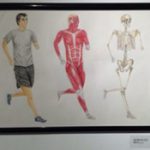 DPT Program Stages an Art Show: Using Art to Develop a Heart for the Profession of Physical Therapy May 2, 2017 - Sue Klappa, PT, PhD, and colleagues discuss how Doctor of Physical Therapy (DPT) students created visual art projects to gain a deeper understanding of how physical therapy transforms society and improves quality of life for patients.
DPT Program Stages an Art Show: Using Art to Develop a Heart for the Profession of Physical Therapy May 2, 2017 - Sue Klappa, PT, PhD, and colleagues discuss how Doctor of Physical Therapy (DPT) students created visual art projects to gain a deeper understanding of how physical therapy transforms society and improves quality of life for patients. War Photography: The Physical and Psychological Costs May 2, 2017 - Exploring the lives and careers of 12 extraordinary war photographers, Anthony Feinstein, PhD, underscores the grave danger these visual historians encounter when covering conflict and raises our awareness of the individuals behind the camera, who risk their lives to bear witness to violence and suffering.
War Photography: The Physical and Psychological Costs May 2, 2017 - Exploring the lives and careers of 12 extraordinary war photographers, Anthony Feinstein, PhD, underscores the grave danger these visual historians encounter when covering conflict and raises our awareness of the individuals behind the camera, who risk their lives to bear witness to violence and suffering. Poet in Profile: Larry Eigner May 2, 2017 - English doctoral student Joe Fritsch provides an introductory look into the complex visual poetics of Larry Eigner (1926-1996), a poet with cerebral palsy, who developed his artistic practice over a lifetime.
Poet in Profile: Larry Eigner May 2, 2017 - English doctoral student Joe Fritsch provides an introductory look into the complex visual poetics of Larry Eigner (1926-1996), a poet with cerebral palsy, who developed his artistic practice over a lifetime. Blurring Lines Between Arts and Sciences May 2, 2017 - Welcome to the Spring 2017 issue of the Journal for Humanities in Rehabilitation. We celebrate educators who blur the lines of arts and sciences as they reveal the true interconnections which drive both innovation across fields and also a deeper meaning individually within ourselves.
Blurring Lines Between Arts and Sciences May 2, 2017 - Welcome to the Spring 2017 issue of the Journal for Humanities in Rehabilitation. We celebrate educators who blur the lines of arts and sciences as they reveal the true interconnections which drive both innovation across fields and also a deeper meaning individually within ourselves. Healing Hands May 2, 2017 - Reflecting on his devoted relationship to his wife, Linda, and her rehabilitation with Occupational Therapist, Melissa Tober, David Bryan Lackey shares the powerful story that inspired the photograph “Healing Hands” and the resultant formation of the Healing Hands clinic which showcases professional images of hands from around the world.
Healing Hands May 2, 2017 - Reflecting on his devoted relationship to his wife, Linda, and her rehabilitation with Occupational Therapist, Melissa Tober, David Bryan Lackey shares the powerful story that inspired the photograph “Healing Hands” and the resultant formation of the Healing Hands clinic which showcases professional images of hands from around the world. Our Roots as Rehabilitation Specialists May 2, 2017 - Vintage 1951 video footage from the first World Confederation of Physical Therapy (WCPT) lays the framework for historical reflections on the evolution of Physical Therapy and rehabilitation, tracing roots of professional identity to distinct cultures and practices from around the world.
Our Roots as Rehabilitation Specialists May 2, 2017 - Vintage 1951 video footage from the first World Confederation of Physical Therapy (WCPT) lays the framework for historical reflections on the evolution of Physical Therapy and rehabilitation, tracing roots of professional identity to distinct cultures and practices from around the world.  Healing Bodies with Diverse Minds May 2, 2017 - In her book, Rethinking Thought, Laura Otis, PhD, explores how differently people receive information and applies these lessons to create strategies for improving patient centered care and maximizing learning.
Healing Bodies with Diverse Minds May 2, 2017 - In her book, Rethinking Thought, Laura Otis, PhD, explores how differently people receive information and applies these lessons to create strategies for improving patient centered care and maximizing learning.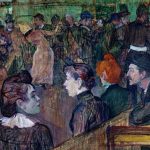 Henri de Toulouse-Lautrec: Disability and Art in Fin-de-Siècle Paris May 2, 2017 - Fourth year medical student John David Ike explores Toulouse Lautrec's physical disability and its impact on his art in fin-de-siècle Paris.
Henri de Toulouse-Lautrec: Disability and Art in Fin-de-Siècle Paris May 2, 2017 - Fourth year medical student John David Ike explores Toulouse Lautrec's physical disability and its impact on his art in fin-de-siècle Paris. Matisse: Innovation in the Face of Physical Limitations November 30, 2016 - Perspectives in Art Section Editor Siobhan Conaty discusses the role of physical disability in the life of artist Henri Matisse.
Matisse: Innovation in the Face of Physical Limitations November 30, 2016 - Perspectives in Art Section Editor Siobhan Conaty discusses the role of physical disability in the life of artist Henri Matisse. Recovery and Reflection: The Role of History in Nursing Education November 30, 2016 - Dr. Kylie Smith explores the history of mental health nursing by studying the therapeutic role of nurses. By examining the social and historical context of nursing practice, she highlights the humanities as powerful educational tools that allow one to critically analyze the assumptions and narratives that underpin modern health care practice.
Recovery and Reflection: The Role of History in Nursing Education November 30, 2016 - Dr. Kylie Smith explores the history of mental health nursing by studying the therapeutic role of nurses. By examining the social and historical context of nursing practice, she highlights the humanities as powerful educational tools that allow one to critically analyze the assumptions and narratives that underpin modern health care practice. Art Saved My Life November 30, 2016 - Bill Forester reflects on re-discovering himself after suffering a massive hemorrhagic stroke. Realizing that he would not be returning to work, Bill and his family devoted their time to his rehabilitation, embarking on an ambitious path of trial and error and the ultimate discovery of painting as a medium for rehabilitation.
Art Saved My Life November 30, 2016 - Bill Forester reflects on re-discovering himself after suffering a massive hemorrhagic stroke. Realizing that he would not be returning to work, Bill and his family devoted their time to his rehabilitation, embarking on an ambitious path of trial and error and the ultimate discovery of painting as a medium for rehabilitation. The Intouchables, A Reflection on Disability and Caregiving: Who Helps Whom? November 30, 2016 - The Olivier Nakache and Eric Toledano film “The Intouchables” poignantly challenges traditional perceptions of disability by asking viewers to contemplate what it truly means to live a full life. The film has served as a powerful educational tool for Sarah Caston, Assistant Professor in the Wingate University Department of Physical Therapy.
The Intouchables, A Reflection on Disability and Caregiving: Who Helps Whom? November 30, 2016 - The Olivier Nakache and Eric Toledano film “The Intouchables” poignantly challenges traditional perceptions of disability by asking viewers to contemplate what it truly means to live a full life. The film has served as a powerful educational tool for Sarah Caston, Assistant Professor in the Wingate University Department of Physical Therapy. Gifts of Wisdom November 30, 2016 - Welcome to the Fall 2016 issue of the Journal for Humanities in Rehabilitation. In a time when civil discourse is challenged by an atmosphere of socio-political unrest, the humanities provide a landscape to foster mindful reflection, to hear our shared stories of suffering and resilience, and to see the expansive potential of art to create meaning in our lives.
Gifts of Wisdom November 30, 2016 - Welcome to the Fall 2016 issue of the Journal for Humanities in Rehabilitation. In a time when civil discourse is challenged by an atmosphere of socio-political unrest, the humanities provide a landscape to foster mindful reflection, to hear our shared stories of suffering and resilience, and to see the expansive potential of art to create meaning in our lives.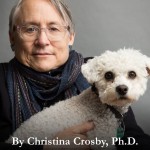 “We are looking for positives here”: Seeking Intersections of Pain, Grief and Disability November 30, 2016 - Dr. Christina Crosby broke her neck in a cycling accident in 2003. She argues that chronic pain and grieving over incapacity need to be openly explored in both therapeutic and scholarly conversations about disability, because pain unacknowledged is corrosive and weakens attachment to ongoing life.
“We are looking for positives here”: Seeking Intersections of Pain, Grief and Disability November 30, 2016 - Dr. Christina Crosby broke her neck in a cycling accident in 2003. She argues that chronic pain and grieving over incapacity need to be openly explored in both therapeutic and scholarly conversations about disability, because pain unacknowledged is corrosive and weakens attachment to ongoing life. Poet in Profile: John O’Donohue November 30, 2016 - Dr. Jenifer Markley examines how the poetry of John O’Donohue challenges healthcare workers to reassess their interactions with suffering “at the intersection of the sacred with the profane."
Poet in Profile: John O’Donohue November 30, 2016 - Dr. Jenifer Markley examines how the poetry of John O’Donohue challenges healthcare workers to reassess their interactions with suffering “at the intersection of the sacred with the profane." From Surviving to Flourishing: Using Narrative as a Tool for Patient-Centered Care November 30, 2016 - Alison Cogan, occupational therapist and doctoral candidate at the University of Southern California, explores the benefits of developing skills for understanding and interpreting stories through reading and analyzing published first-person illness narratives.
From Surviving to Flourishing: Using Narrative as a Tool for Patient-Centered Care November 30, 2016 - Alison Cogan, occupational therapist and doctoral candidate at the University of Southern California, explores the benefits of developing skills for understanding and interpreting stories through reading and analyzing published first-person illness narratives. “Research” What You Say: I Did Not Suffer a Stroke, I Survived One November 30, 2016 - Stroke survivor Eva Froehle reflects on the use of language in study recruitment material as she shares thoughtful insights from a research participant perspective.
“Research” What You Say: I Did Not Suffer a Stroke, I Survived One November 30, 2016 - Stroke survivor Eva Froehle reflects on the use of language in study recruitment material as she shares thoughtful insights from a research participant perspective.  Lessons Outside the Classroom: The Moultrie Migrant Farmworker Experience November 30, 2016 - Dr. Jodan Garcia writes about the transformative experience of serving migrant farmworkers in south Georgia.
Lessons Outside the Classroom: The Moultrie Migrant Farmworker Experience November 30, 2016 - Dr. Jodan Garcia writes about the transformative experience of serving migrant farmworkers in south Georgia. 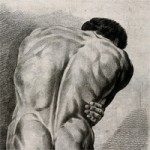 “It Sounds Like a Drama:” Hearing Stories of Chronic Low Back Pain Through Poetic (Re)presentation November 30, 2016 - British researchers Dr. Vinette Cross and colleagues bring a poetic voice to the experiences of patients with chronic low back pain and their family members, creating a performance that bears witness to the frustration, sadness and resolve of these individuals.
“It Sounds Like a Drama:” Hearing Stories of Chronic Low Back Pain Through Poetic (Re)presentation November 30, 2016 - British researchers Dr. Vinette Cross and colleagues bring a poetic voice to the experiences of patients with chronic low back pain and their family members, creating a performance that bears witness to the frustration, sadness and resolve of these individuals. Remnants of Her November 30, 2016 - Program Director in Nutrition and Dietetics at the University of Southern Mississipi, Dr. Holly Huye shares a poignant reflection of her mother’s struggles with dementia and a family’s dedication to preserving memories.
Remnants of Her November 30, 2016 - Program Director in Nutrition and Dietetics at the University of Southern Mississipi, Dr. Holly Huye shares a poignant reflection of her mother’s struggles with dementia and a family’s dedication to preserving memories. Of Human Bonding: Developing Interprofessional Competencies in the Humanities Classroom November 30, 2016 - Health humanities scholar and creative writer, Dr. Lisa Kerr Dunn joins with Medical University of South Carolina colleagues to provide strategies for designing health humanities courses to foster the development of student collaborative knowledge, attitudes, and skills.
Of Human Bonding: Developing Interprofessional Competencies in the Humanities Classroom November 30, 2016 - Health humanities scholar and creative writer, Dr. Lisa Kerr Dunn joins with Medical University of South Carolina colleagues to provide strategies for designing health humanities courses to foster the development of student collaborative knowledge, attitudes, and skills. Sharing Spirits and Silence is Strength November 30, 2016 - Struggling with severe aphasia after her stroke, Yvette Warren offers a truly powerful poetic expression of her journey and reminds us of the strength in silence.
Sharing Spirits and Silence is Strength November 30, 2016 - Struggling with severe aphasia after her stroke, Yvette Warren offers a truly powerful poetic expression of her journey and reminds us of the strength in silence. The Humanities and Speech-Language Pathology in Rehabilitation November 30, 2016 - Dr. Jacqueline Laures-Gore, Director of the Aphasia and Motor Speech Disorders Research Lab at Georgia State University, describes how speech-language pathologists have sought to use modes of artistic expression to link humanistic endeavor with the science of clinical work.
The Humanities and Speech-Language Pathology in Rehabilitation November 30, 2016 - Dr. Jacqueline Laures-Gore, Director of the Aphasia and Motor Speech Disorders Research Lab at Georgia State University, describes how speech-language pathologists have sought to use modes of artistic expression to link humanistic endeavor with the science of clinical work. Resources: Fall 2016 November 8, 2016 - Collection of links and resources for health humanities with potential applications in rehabilitation sciences education, clinical care and research.
Resources: Fall 2016 November 8, 2016 - Collection of links and resources for health humanities with potential applications in rehabilitation sciences education, clinical care and research. Rembrandt’s Anatomical Portraits June 20, 2016 - Historical Perspectives in Art Section Editor Siobhan Conaty metaphorically dissects Dutch painter Rembrandt van Rijn's life and work to better inform our understanding of the impact of art on the study of anatomy.
Rembrandt’s Anatomical Portraits June 20, 2016 - Historical Perspectives in Art Section Editor Siobhan Conaty metaphorically dissects Dutch painter Rembrandt van Rijn's life and work to better inform our understanding of the impact of art on the study of anatomy.  Finding Your Voice Through Poetry June 20, 2016 - Maria Birdseye, joined by her speech therapist Rita Lor demonstrates the power of poetry in light of the challenges of Parkinson's disease.
Finding Your Voice Through Poetry June 20, 2016 - Maria Birdseye, joined by her speech therapist Rita Lor demonstrates the power of poetry in light of the challenges of Parkinson's disease. 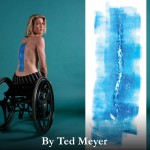 Scarred for Life: Using Art to Bring Humanity to Trauma Recovery June 20, 2016 - Artist Ted Meyer shares his story of how he turns trauma into art that transforms the way patients and care providers view physical scars.
Scarred for Life: Using Art to Bring Humanity to Trauma Recovery June 20, 2016 - Artist Ted Meyer shares his story of how he turns trauma into art that transforms the way patients and care providers view physical scars. 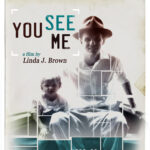 You See Me – A Film Review and Narrative from Director Linda J. Brown June 20, 2016 - In this media review and interview, filmmaker Linda Brown discusses how she used documentary film after her father's stroke to confront his complex past of trauma and loss to create a redemptive journey of rehabilitation for herself and her family.
You See Me – A Film Review and Narrative from Director Linda J. Brown June 20, 2016 - In this media review and interview, filmmaker Linda Brown discusses how she used documentary film after her father's stroke to confront his complex past of trauma and loss to create a redemptive journey of rehabilitation for herself and her family.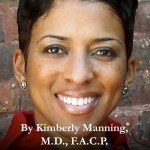 Preparing the Ground for Interprofessional Education: Getting to Know Each Other June 20, 2016 - Kimberly Manning and her health science colleagues demonstrate the value of the reflective writing process to promote interprofessional learning amongst faculty.
Preparing the Ground for Interprofessional Education: Getting to Know Each Other June 20, 2016 - Kimberly Manning and her health science colleagues demonstrate the value of the reflective writing process to promote interprofessional learning amongst faculty. Poet in Profile – Robert Frost (1874-1963) June 20, 2016 - Poetry Section Editor Marilyn McEntyre revisits the classic Robert Frost and challenges readers to use Frost's words to reflect on the way we interact with our patients.
Poet in Profile – Robert Frost (1874-1963) June 20, 2016 - Poetry Section Editor Marilyn McEntyre revisits the classic Robert Frost and challenges readers to use Frost's words to reflect on the way we interact with our patients.  Disabled Souls June 20, 2016 - Zoher Kapasi’s uses poetry to respond to India’s stark healthcare inequality in the 1980s while calling attention to the role perspective plays in the way we perceive ourselves and others.
Disabled Souls June 20, 2016 - Zoher Kapasi’s uses poetry to respond to India’s stark healthcare inequality in the 1980s while calling attention to the role perspective plays in the way we perceive ourselves and others.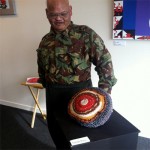 Art as a Tool for Disseminating Research Outcomes: The Hauā Mana Māori Project and Participatory Action Research in New Zealand June 20, 2016 - New Zealand professor Katrina Bryant and colleagues describe their work with patient-centered research resulting in an art exhibit that conveys a cultural experience of disability.
Art as a Tool for Disseminating Research Outcomes: The Hauā Mana Māori Project and Participatory Action Research in New Zealand June 20, 2016 - New Zealand professor Katrina Bryant and colleagues describe their work with patient-centered research resulting in an art exhibit that conveys a cultural experience of disability.  Dual Impact June 20, 2016 - Amanda Lalonde’s clinical narrative reflects on the power of her patient’s resilience, and its impact on both his recovery and her sense of self as a clinician.
Dual Impact June 20, 2016 - Amanda Lalonde’s clinical narrative reflects on the power of her patient’s resilience, and its impact on both his recovery and her sense of self as a clinician. It’s All Good June 20, 2016 - Veteran poet Hugh Suggs uses his craft to find meaning in suffering and offer hope through the healing language of poetry.
It’s All Good June 20, 2016 - Veteran poet Hugh Suggs uses his craft to find meaning in suffering and offer hope through the healing language of poetry.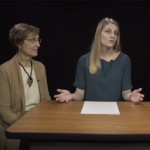 Mentoring the Next Generation of Health Care Providers: An Interprofessional Senior Mentor Program June 20, 2016 - Renowned Sociology scholar Ellen Idler and colleagues share an innovative interprofessional education program that engages older adults as mentors providing unique insights on aging and healthcare.
Mentoring the Next Generation of Health Care Providers: An Interprofessional Senior Mentor Program June 20, 2016 - Renowned Sociology scholar Ellen Idler and colleagues share an innovative interprofessional education program that engages older adults as mentors providing unique insights on aging and healthcare.  Collaborating Across Borders V – October 1, 2015 November 10, 2015 - Voices, Faces, and Relationships: Using Humanities to Facilitate IPE with the Rehabilitation Professions The JHR Editorial Board led a discussion group at the Collaborating Across Borders V conference in Roanoke, Virginia October 1. The theme of the conference was “ The Interprofesssional Journey: Advancing Integration and Impact” Topic/Subject: This discussion group explored how […]
Collaborating Across Borders V – October 1, 2015 November 10, 2015 - Voices, Faces, and Relationships: Using Humanities to Facilitate IPE with the Rehabilitation Professions The JHR Editorial Board led a discussion group at the Collaborating Across Borders V conference in Roanoke, Virginia October 1. The theme of the conference was “ The Interprofesssional Journey: Advancing Integration and Impact” Topic/Subject: This discussion group explored how […] About Visual Arts Submissions January 20, 2015 - Visual arts submissions may be submitted in several different genres, including photos, videos, original painting or artwork. For example, photo or video submissions may include collections of original photography or other multimedia to portray or analyze real issues or relationships that represent the humanities in the rehabilitation sciences. Include a brief reflective text with such […]
About Visual Arts Submissions January 20, 2015 - Visual arts submissions may be submitted in several different genres, including photos, videos, original painting or artwork. For example, photo or video submissions may include collections of original photography or other multimedia to portray or analyze real issues or relationships that represent the humanities in the rehabilitation sciences. Include a brief reflective text with such […] About Research Reports January 20, 2015 - Original Research submissions should follow a traditional approach with a hypothesis and statistical analysis to support conclusions. Manuscripts should be limited to 4000 words of text (Introduction, Methods, Results, Discussion and Conclusions) and include an abstract of no more than 250 words (Background, Objective, Method, Results and Conclusion). Submissions should include a separate title page […]
About Research Reports January 20, 2015 - Original Research submissions should follow a traditional approach with a hypothesis and statistical analysis to support conclusions. Manuscripts should be limited to 4000 words of text (Introduction, Methods, Results, Discussion and Conclusions) and include an abstract of no more than 250 words (Background, Objective, Method, Results and Conclusion). Submissions should include a separate title page […] About Letters to the Editors October 3, 2014 - Letter to the Editor submissions should provide timely, thoughtful dialogue on a recently published article in The Journal of Humanities in Rehabilitation. Letters are published at the discretion of the Editorial Board and the Board reserves the right to solicit a response from the author(s) of the cited article. Letters should be no more than […]
About Letters to the Editors October 3, 2014 - Letter to the Editor submissions should provide timely, thoughtful dialogue on a recently published article in The Journal of Humanities in Rehabilitation. Letters are published at the discretion of the Editorial Board and the Board reserves the right to solicit a response from the author(s) of the cited article. Letters should be no more than […]